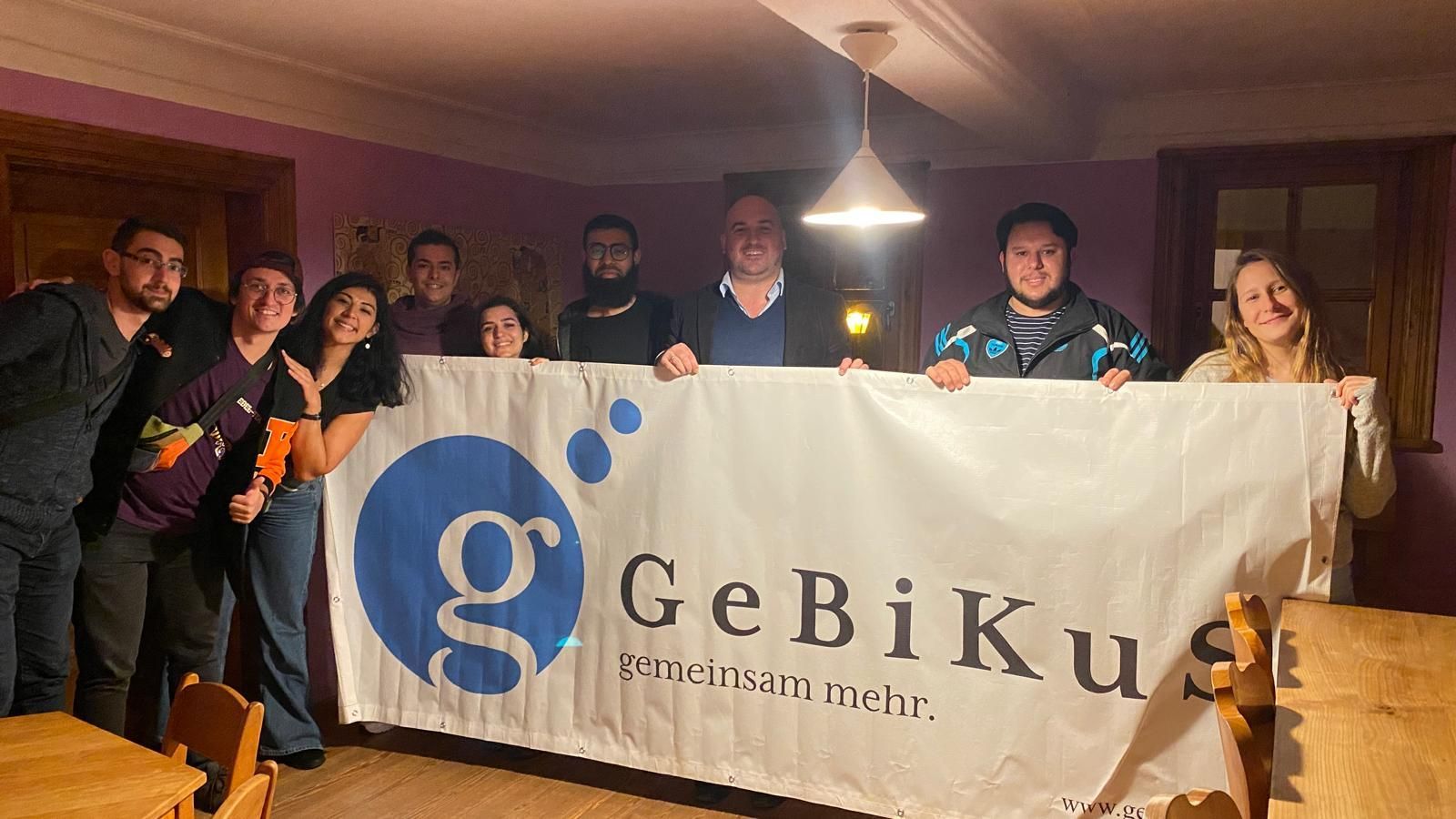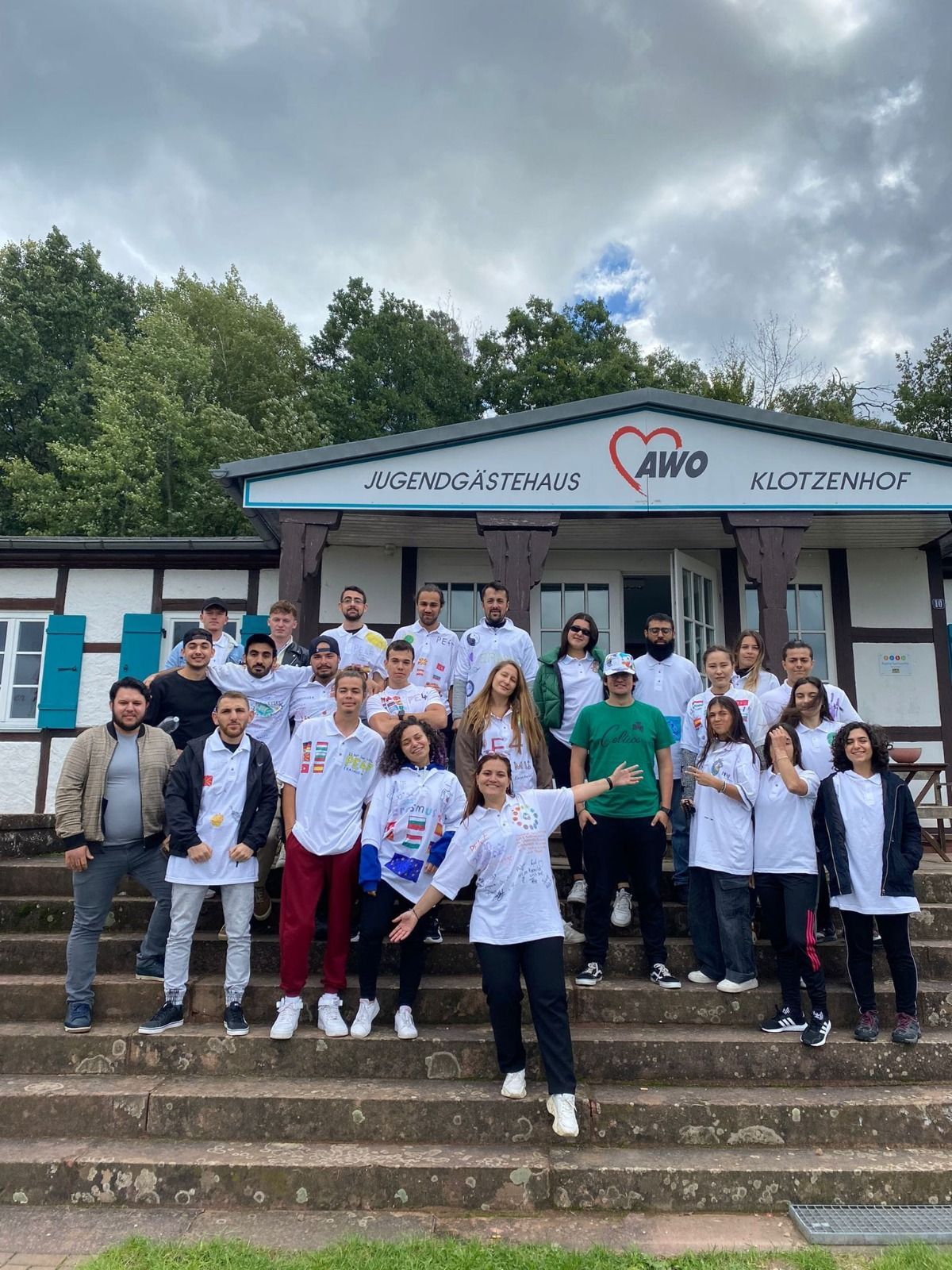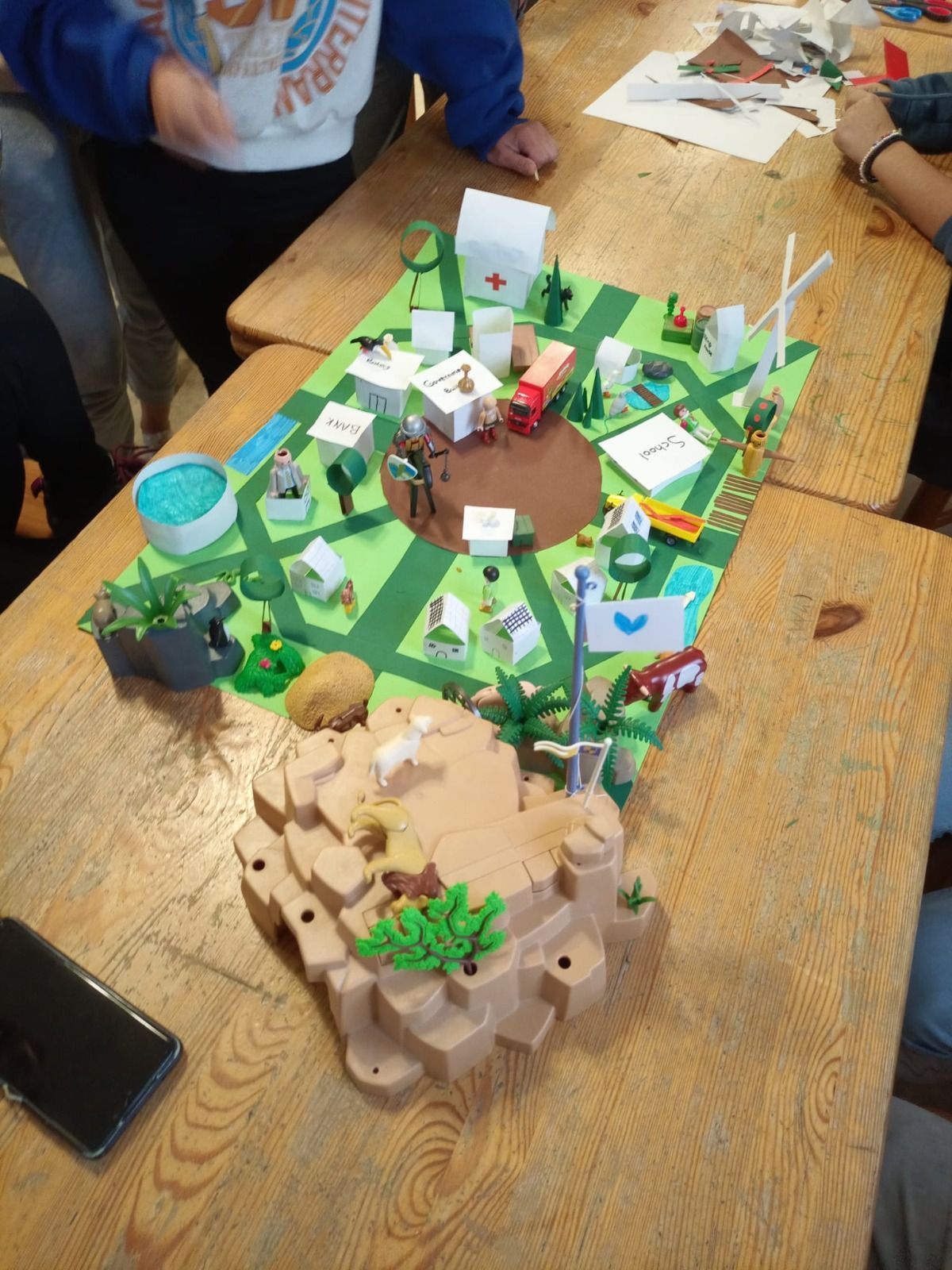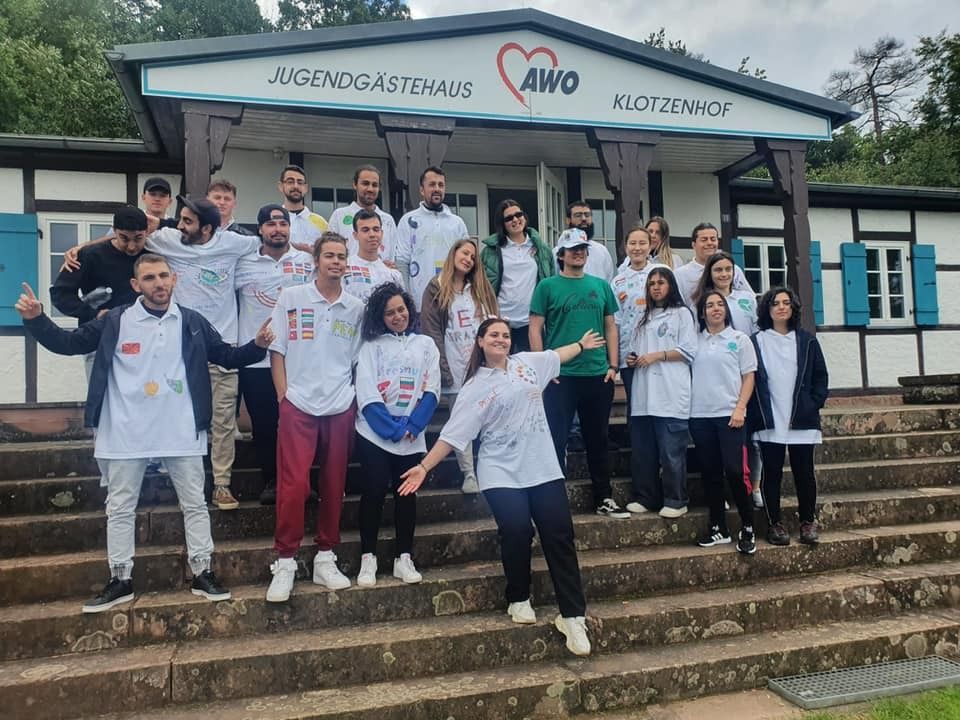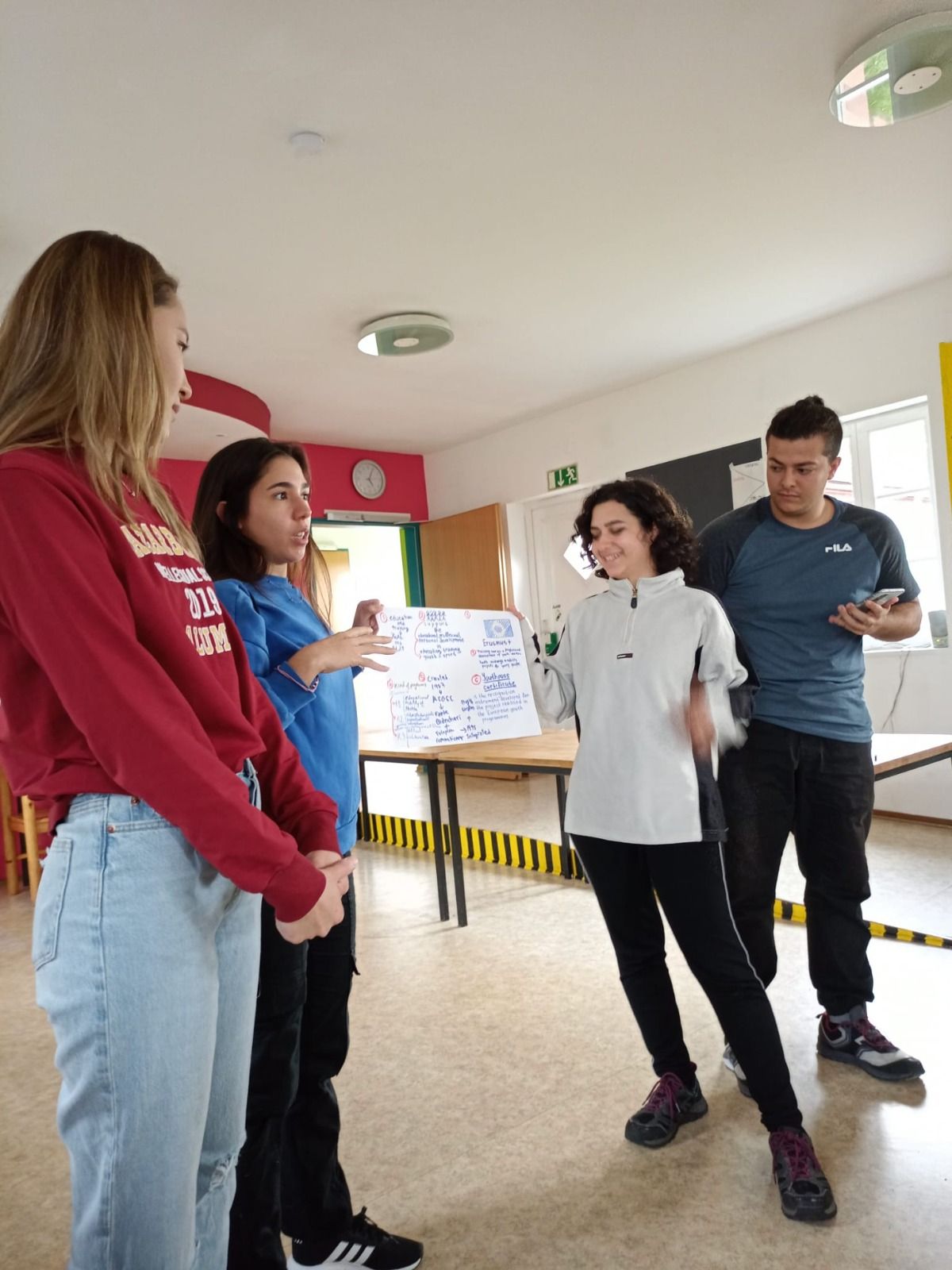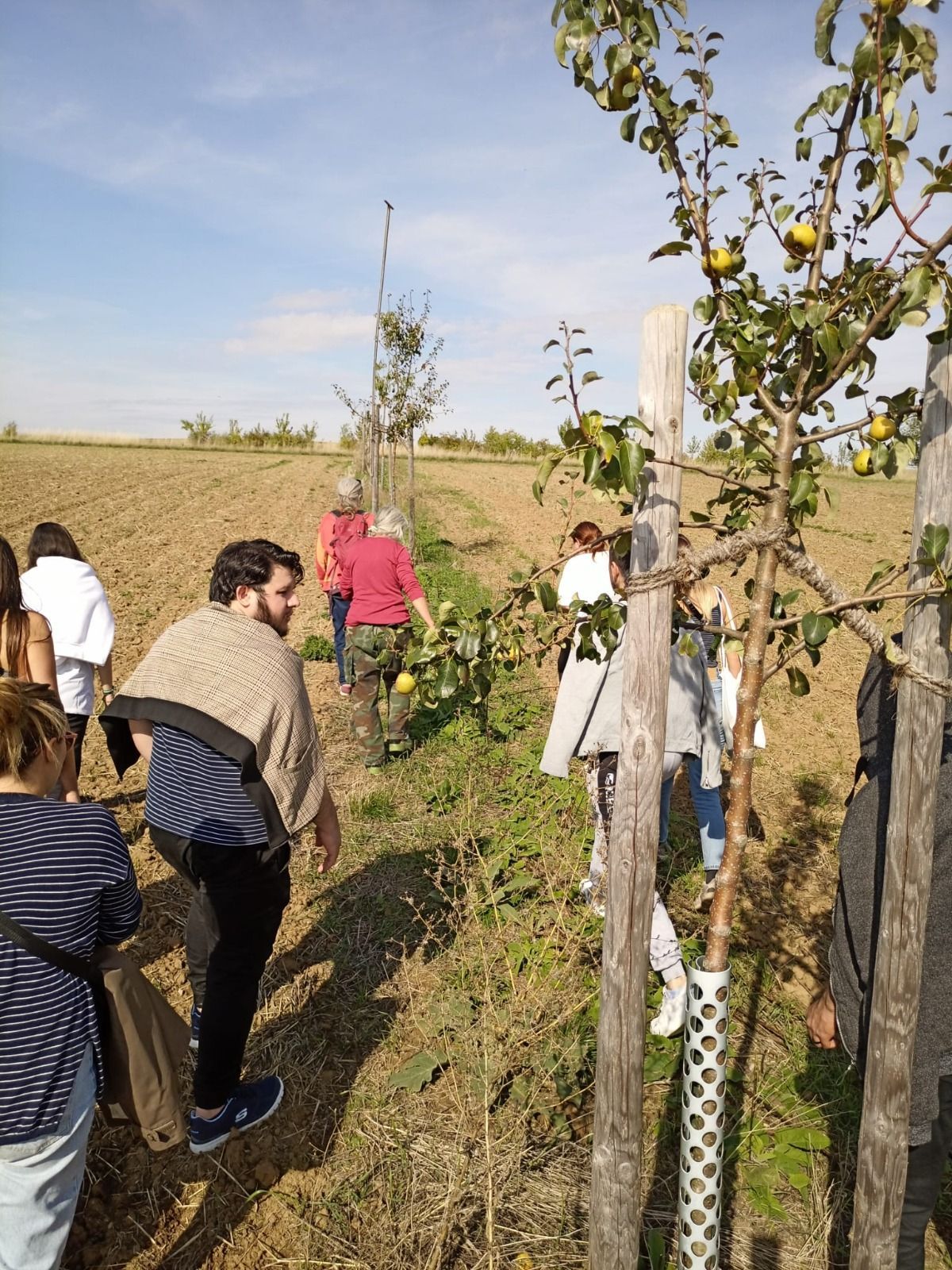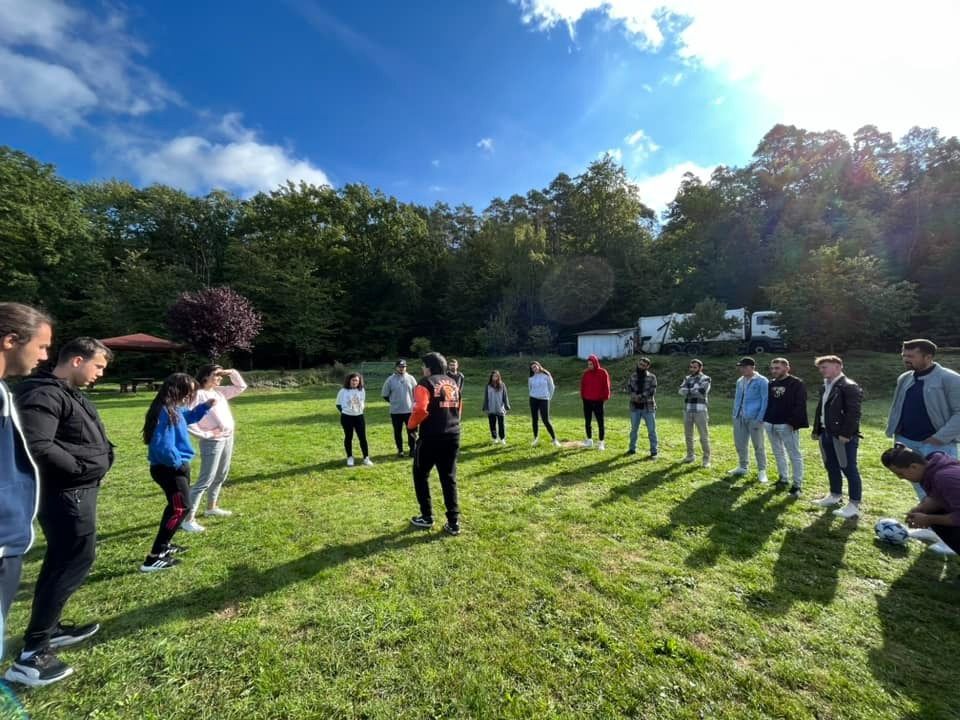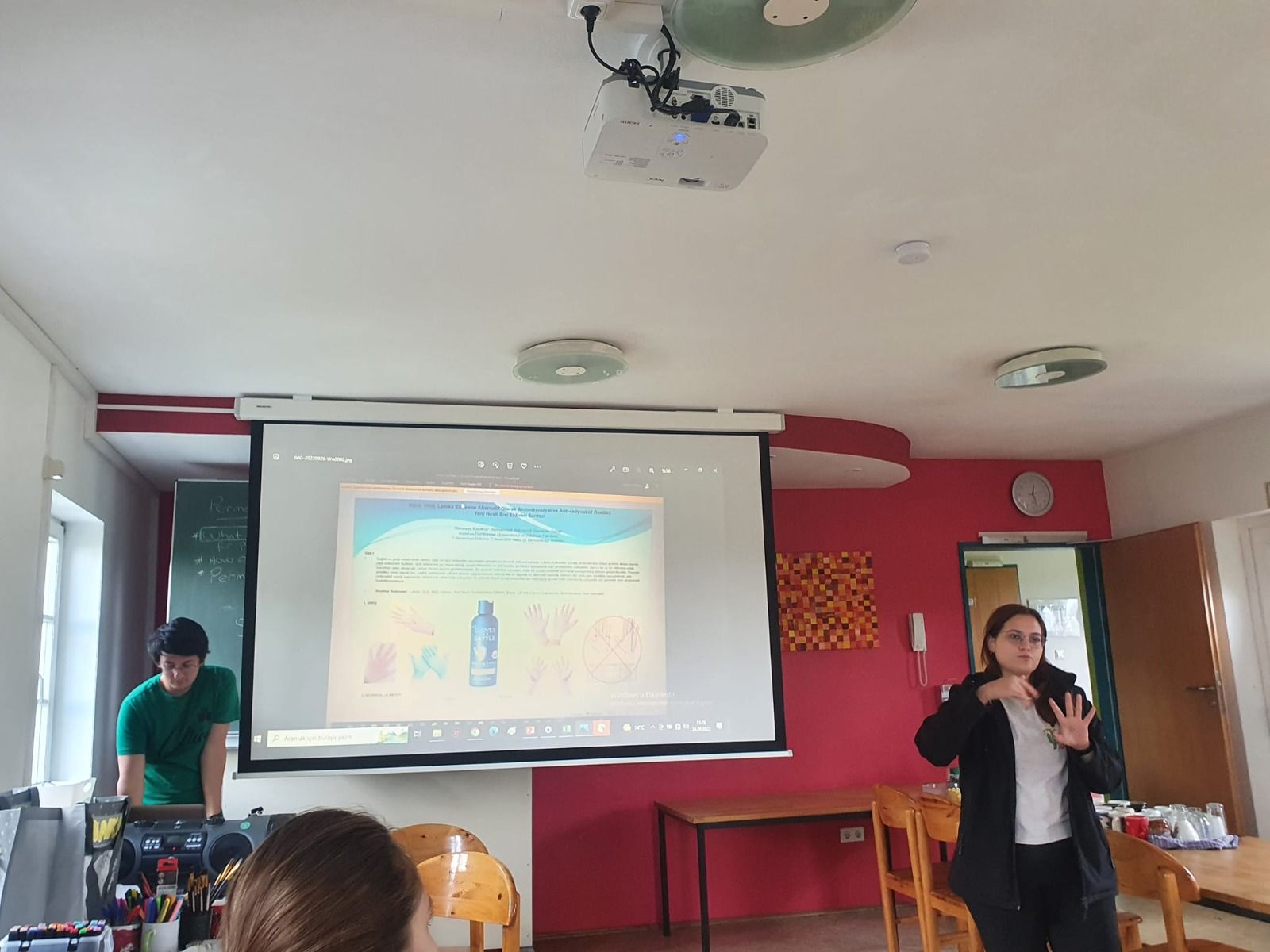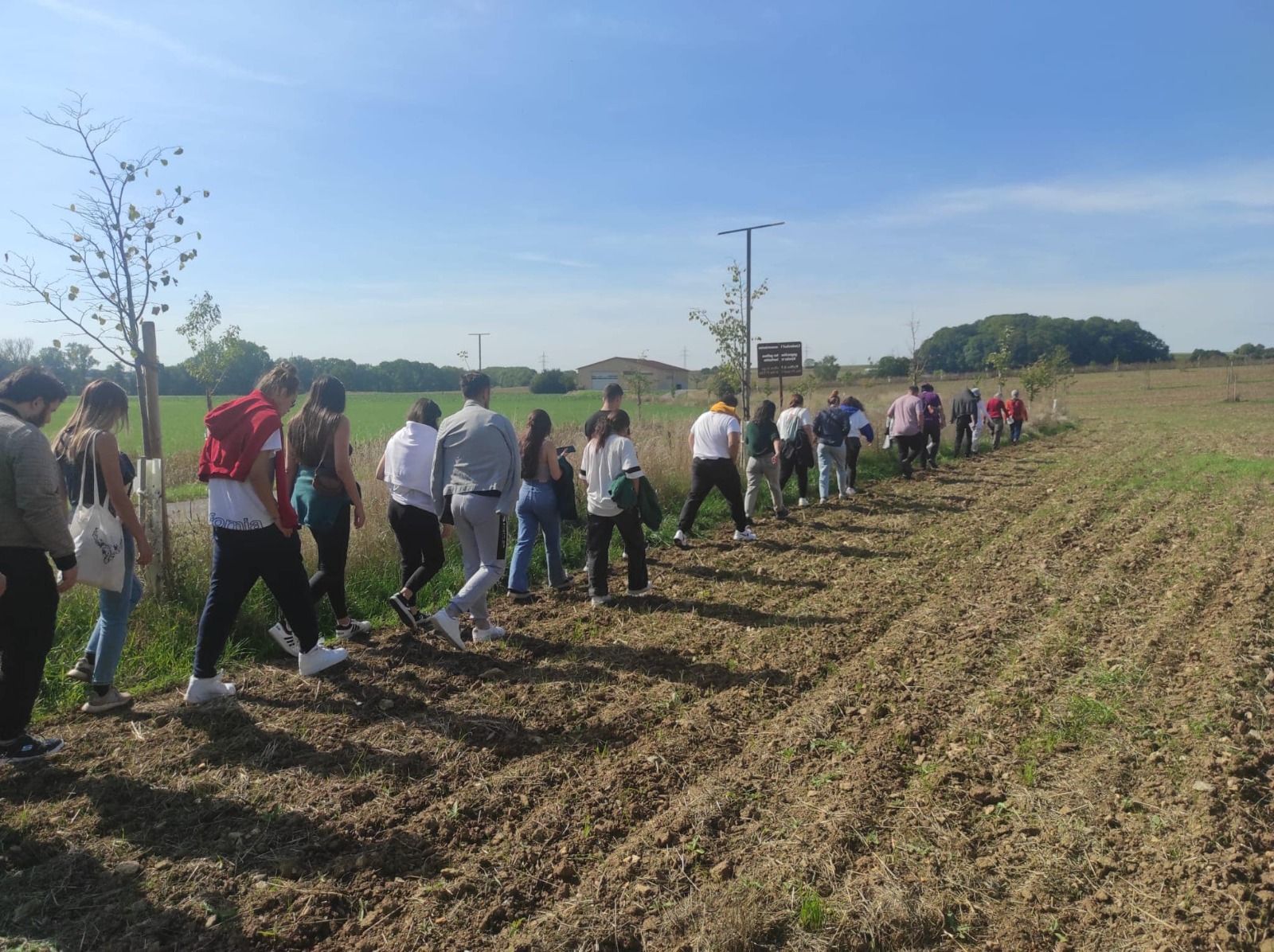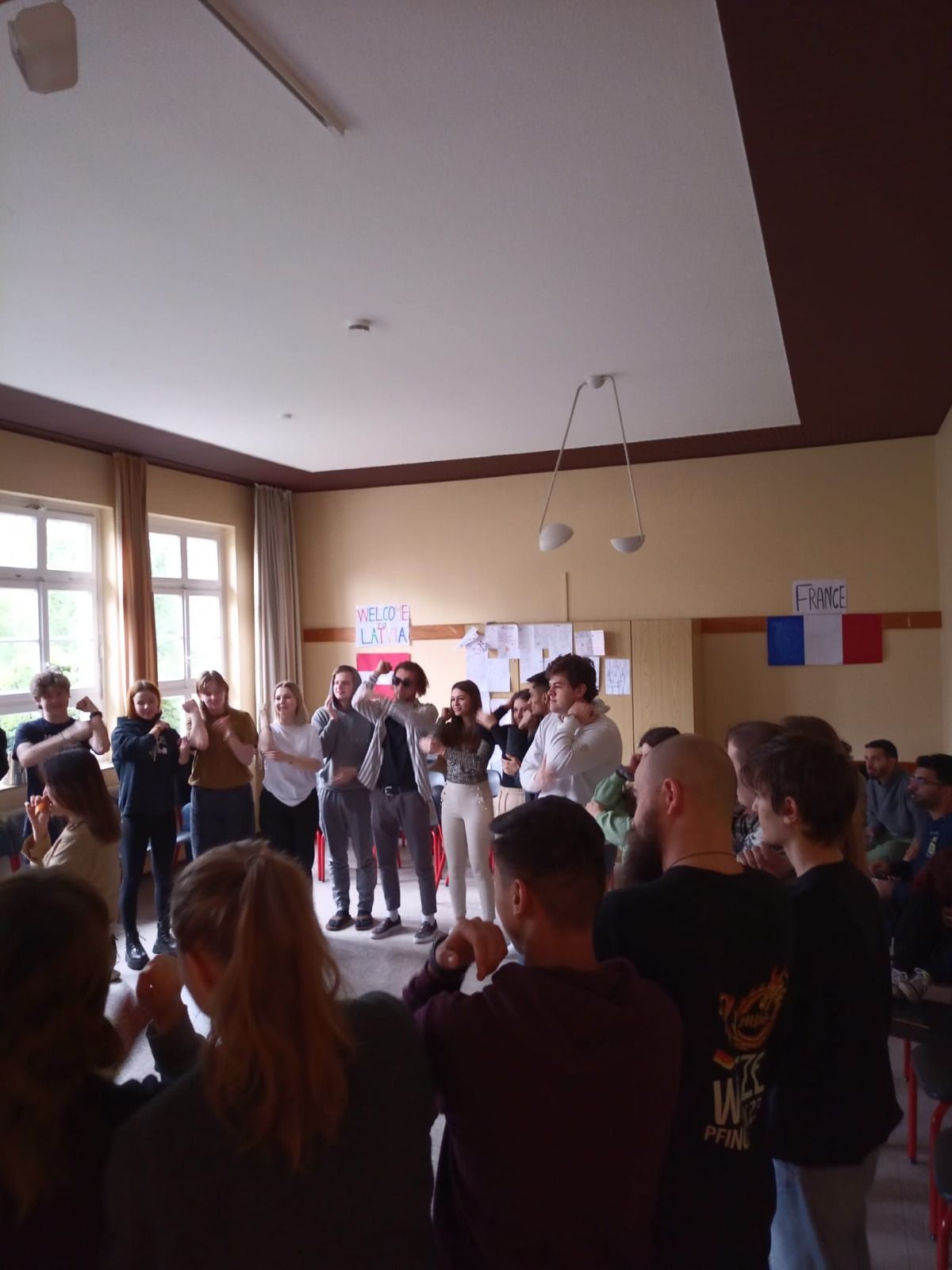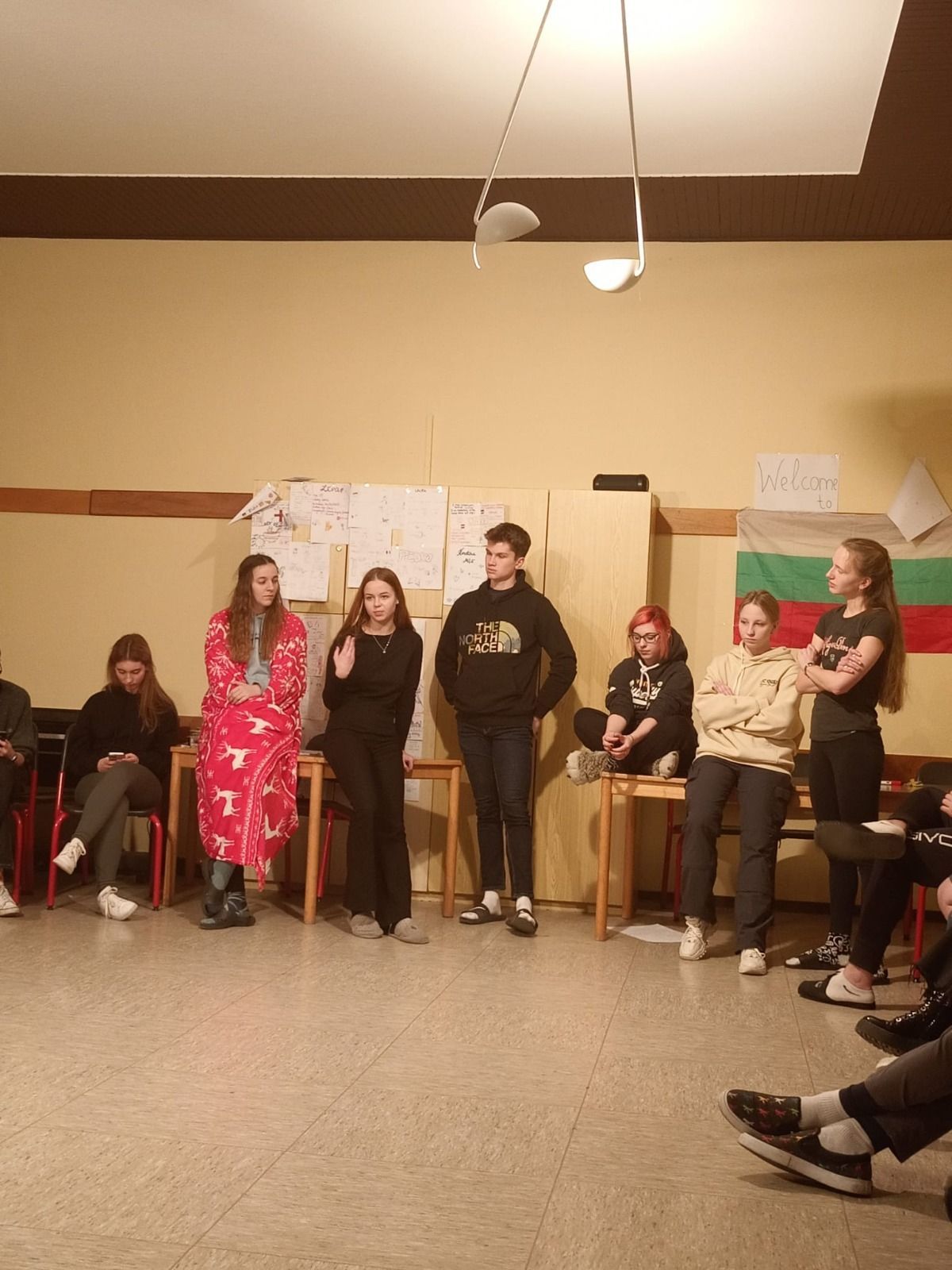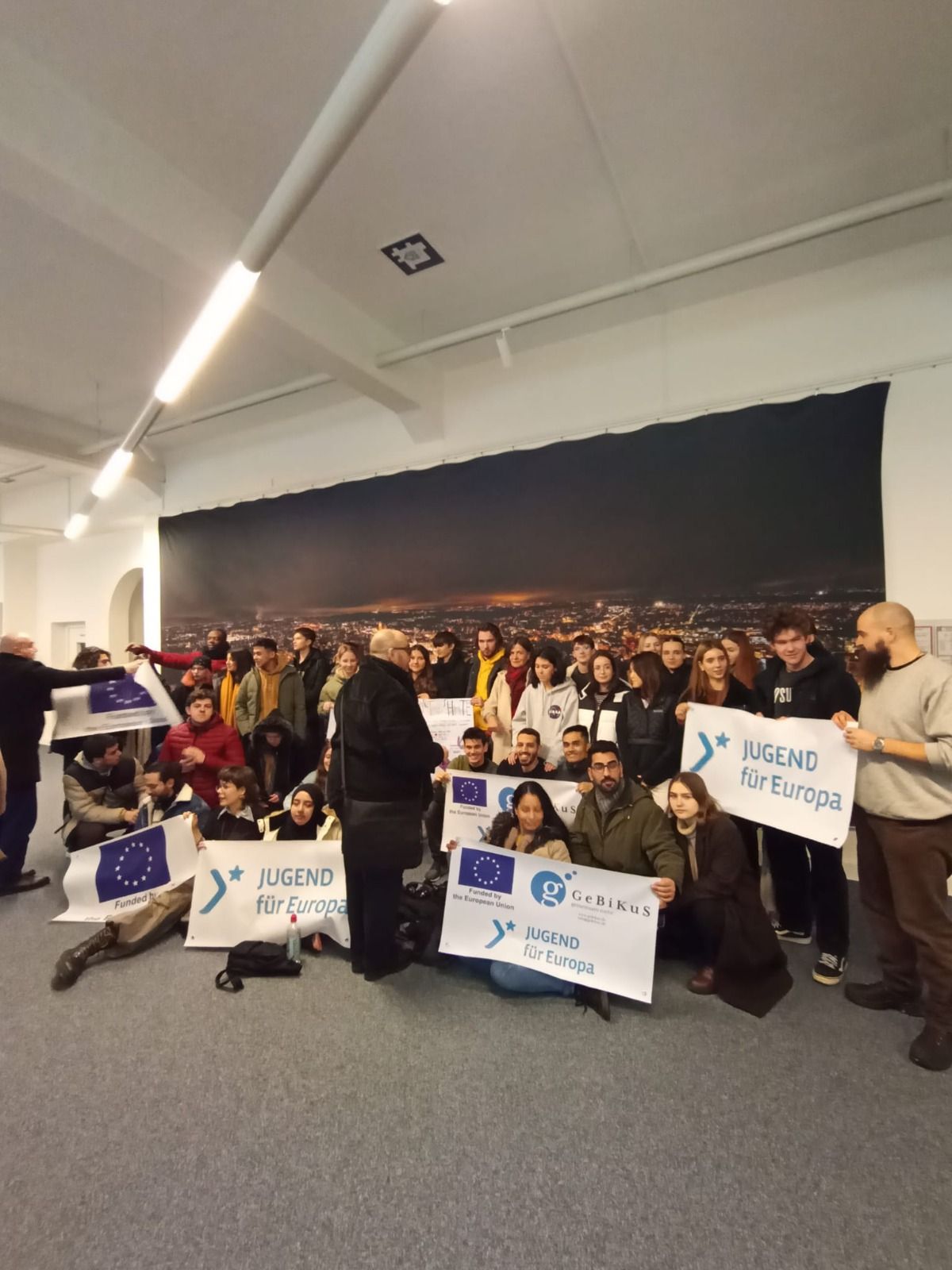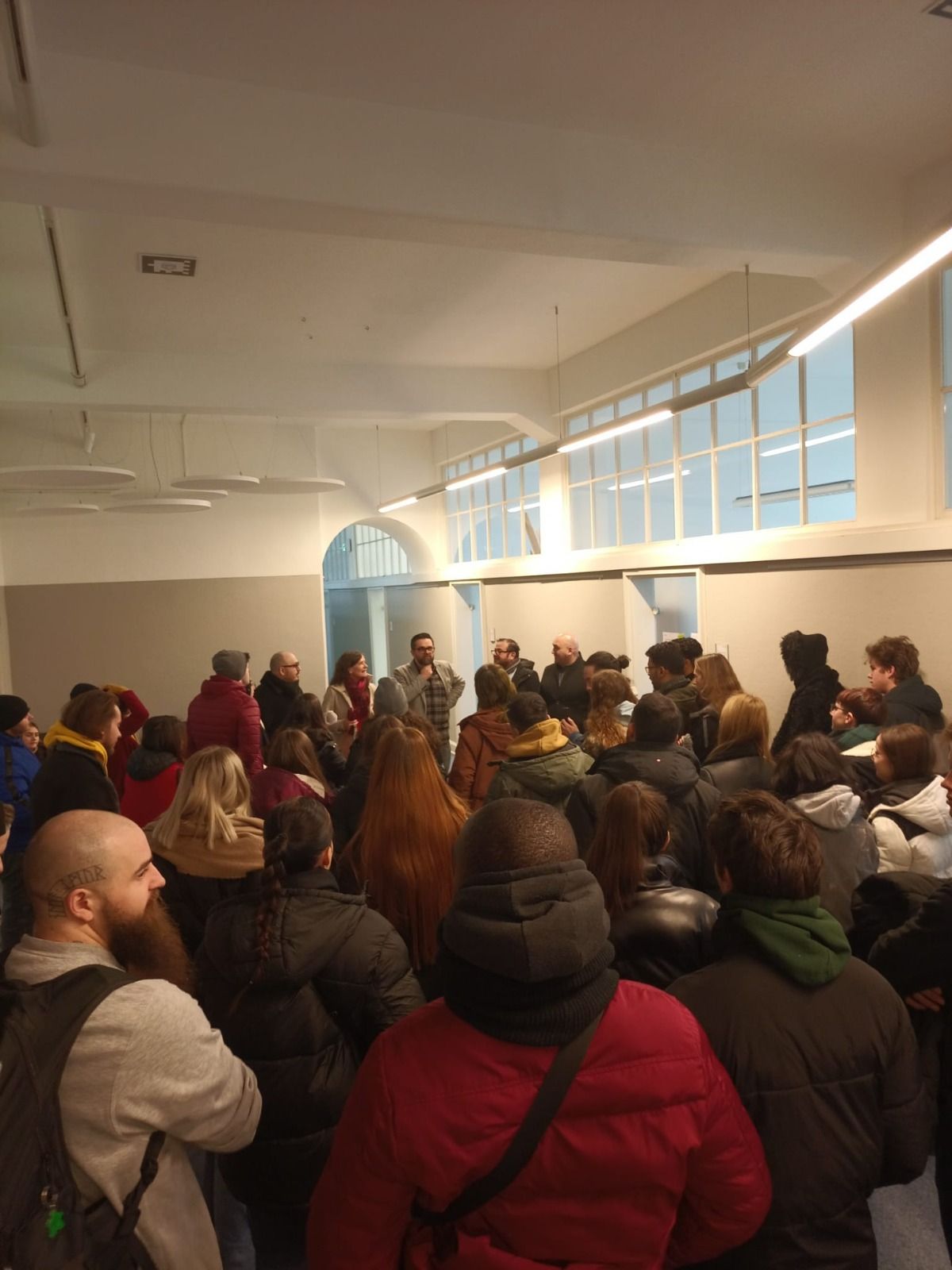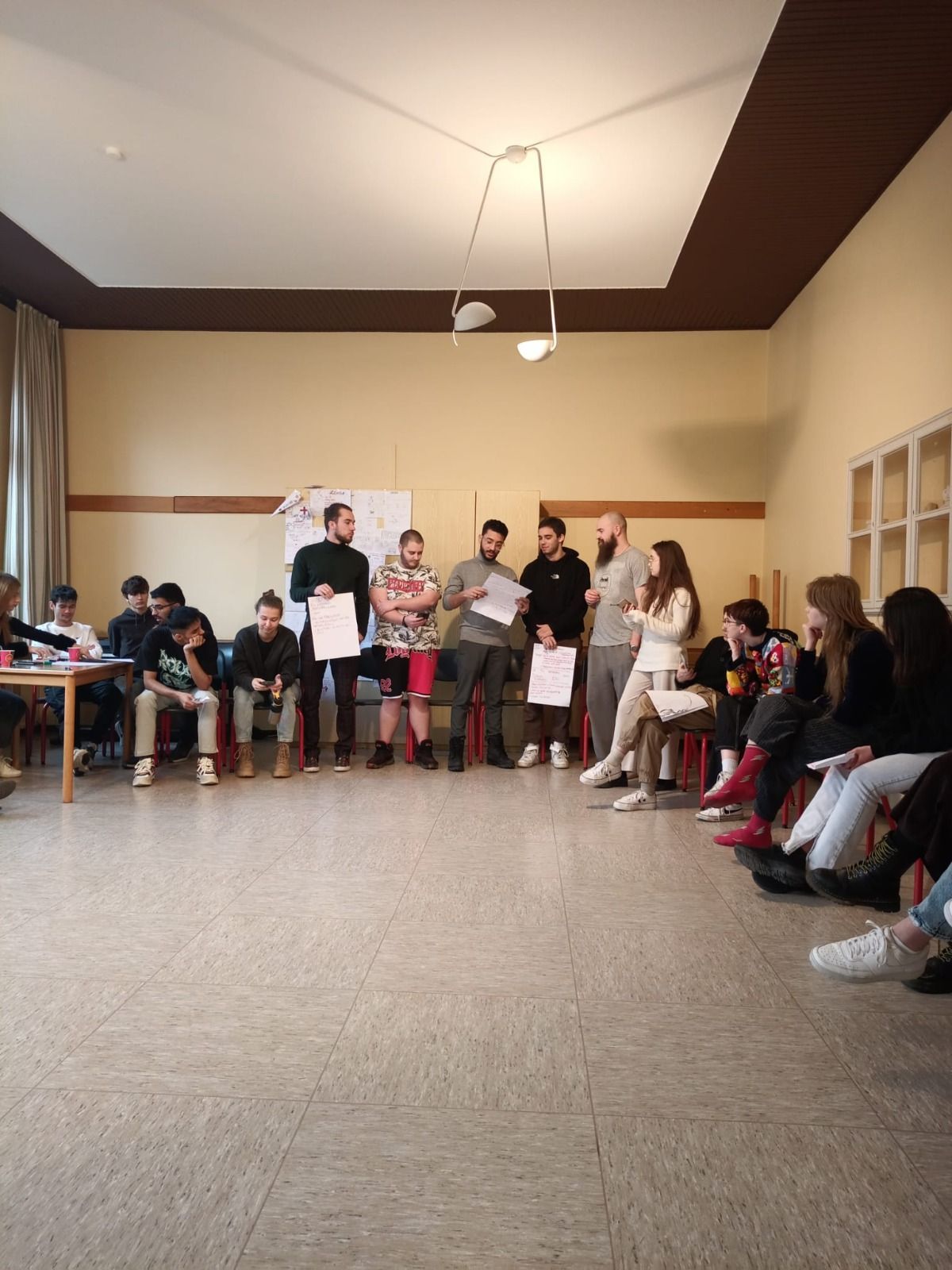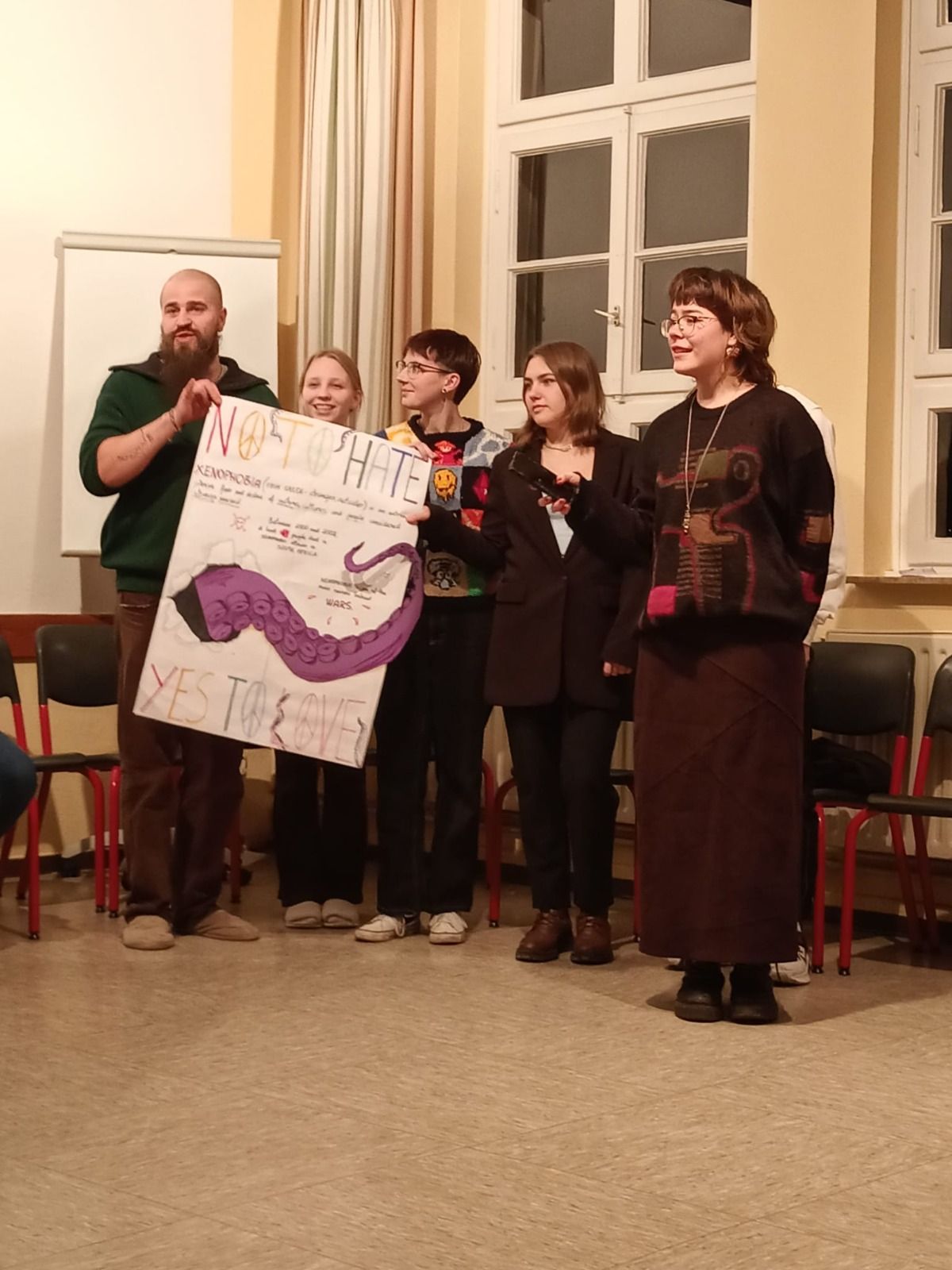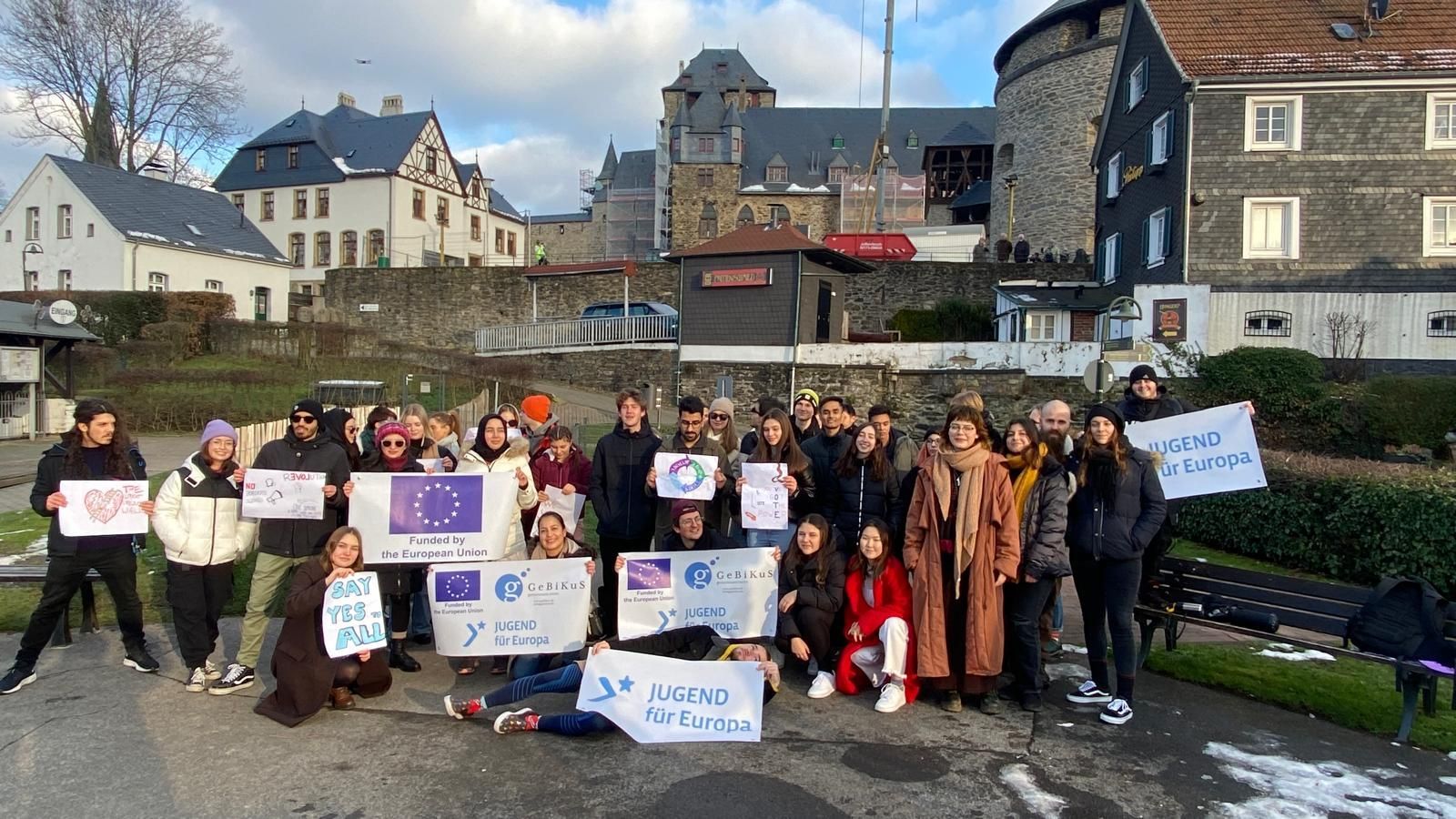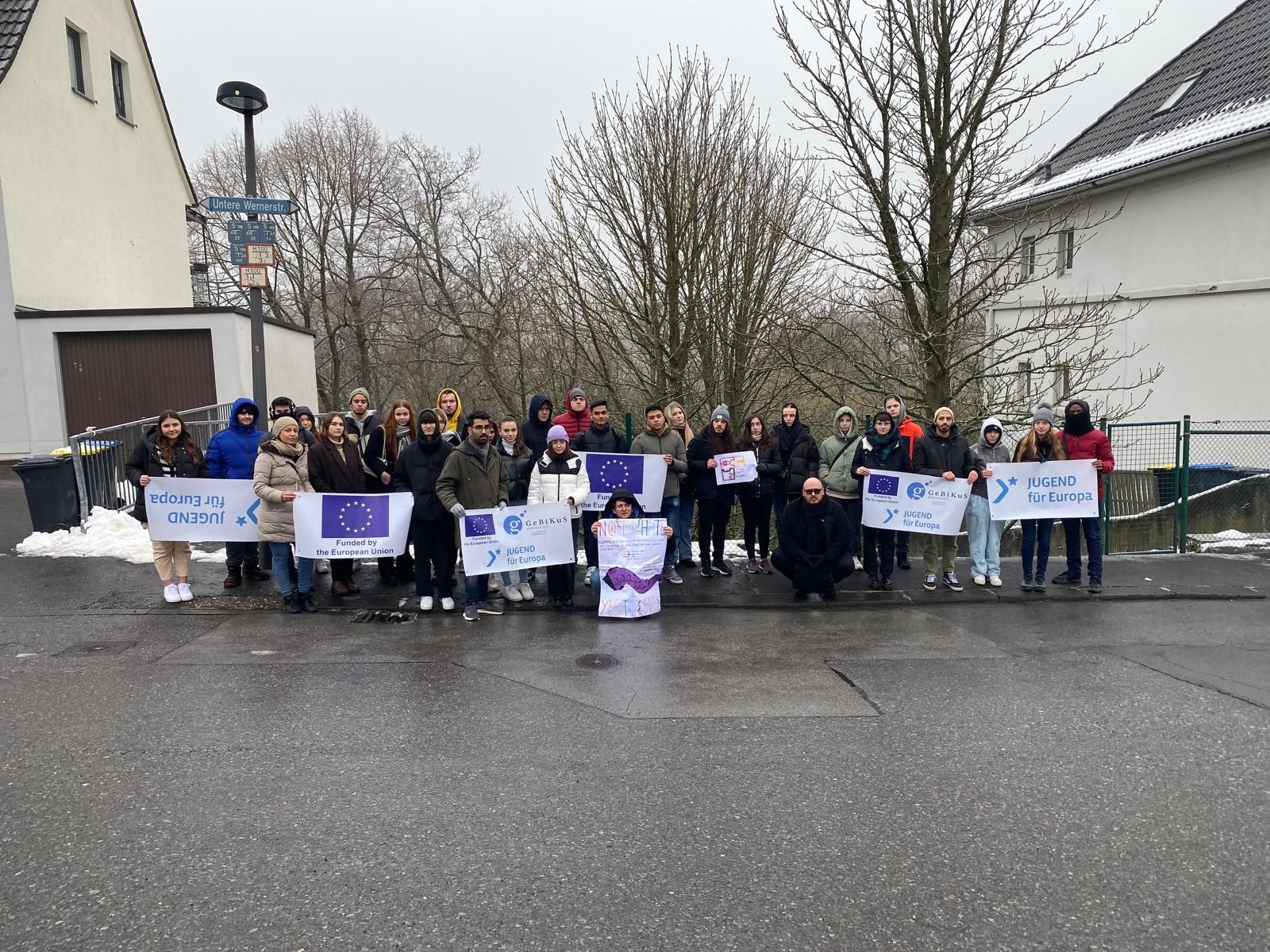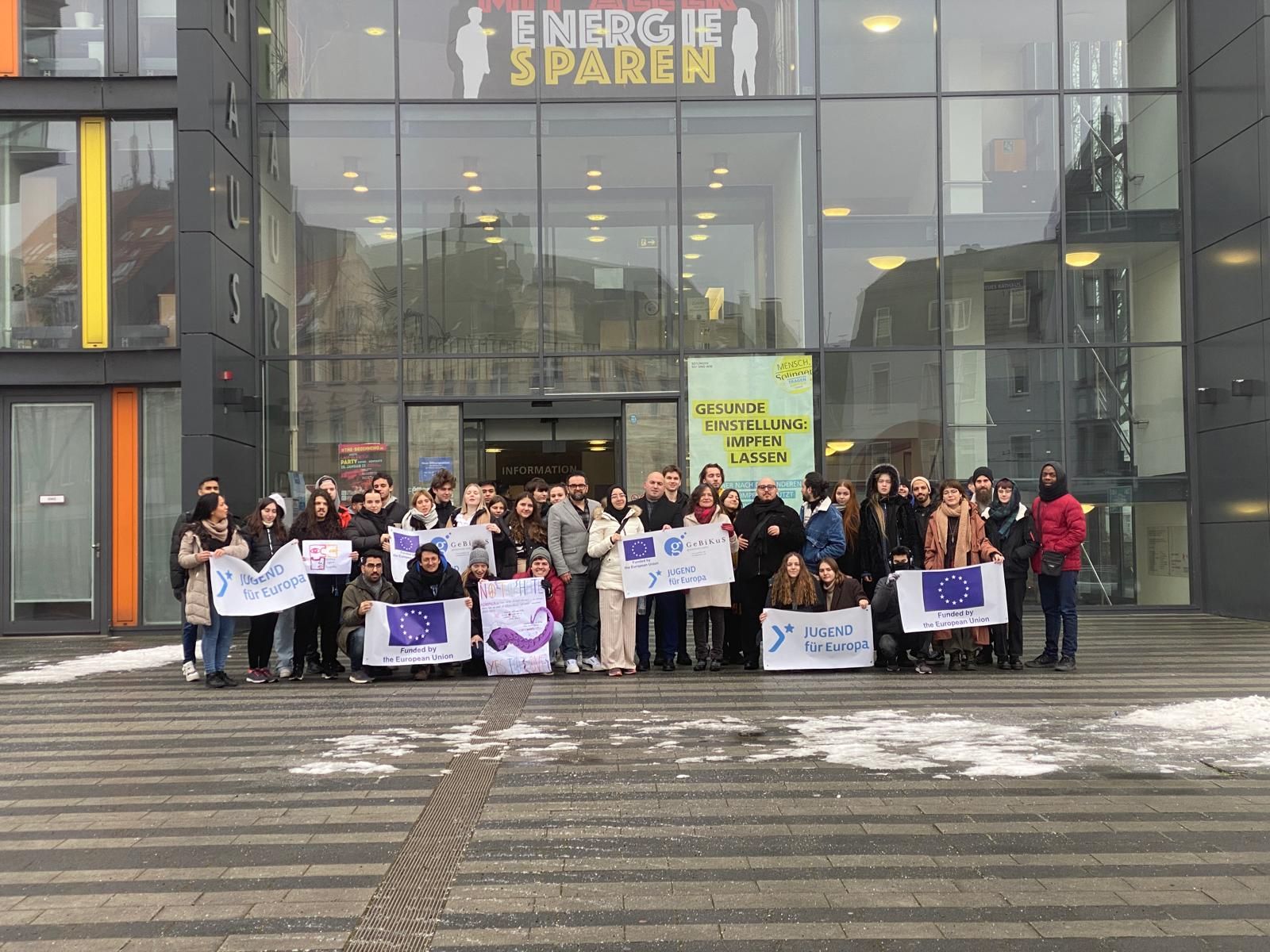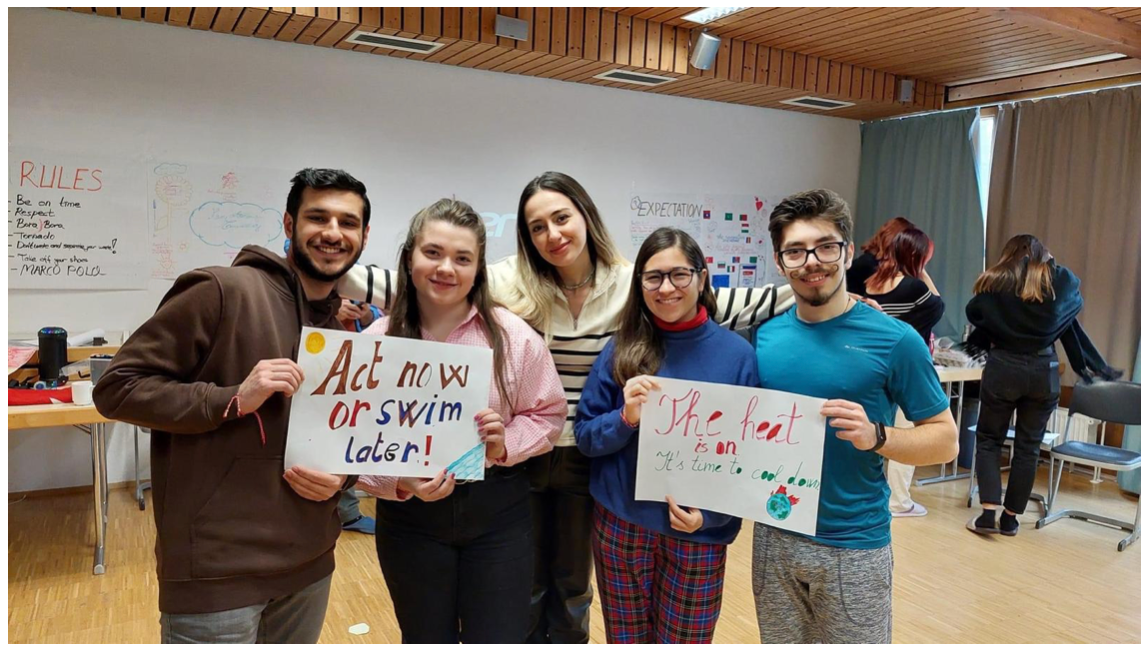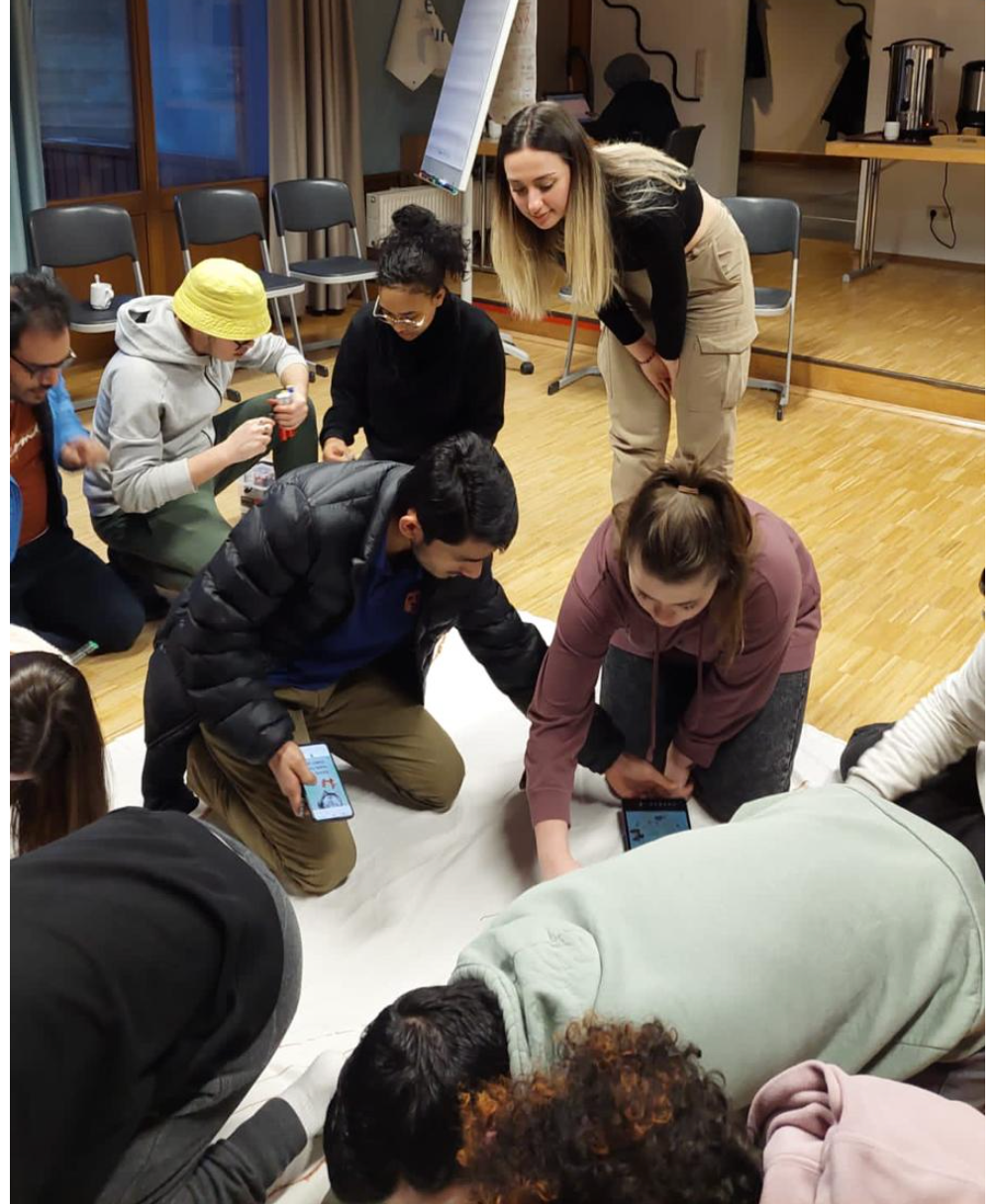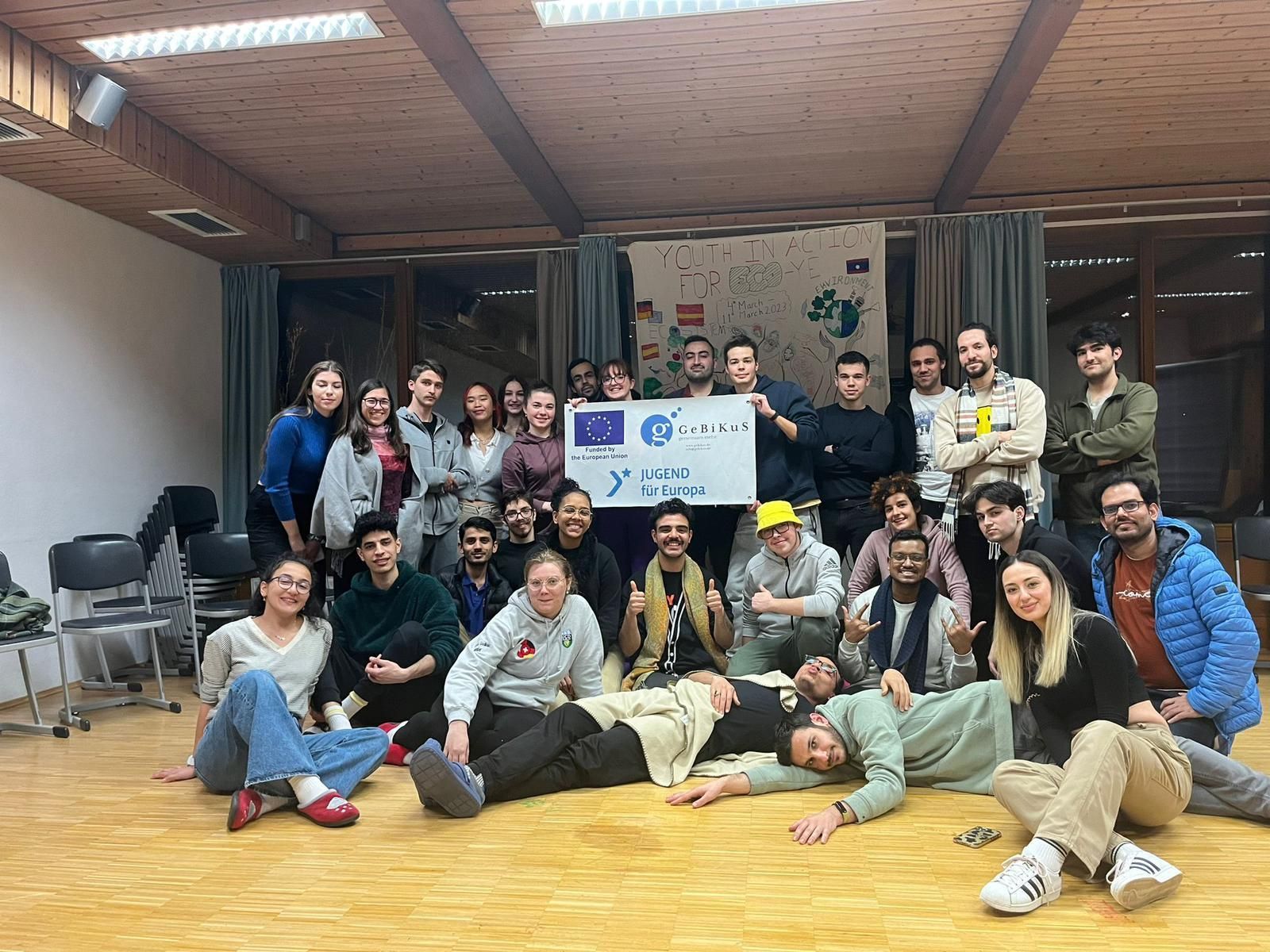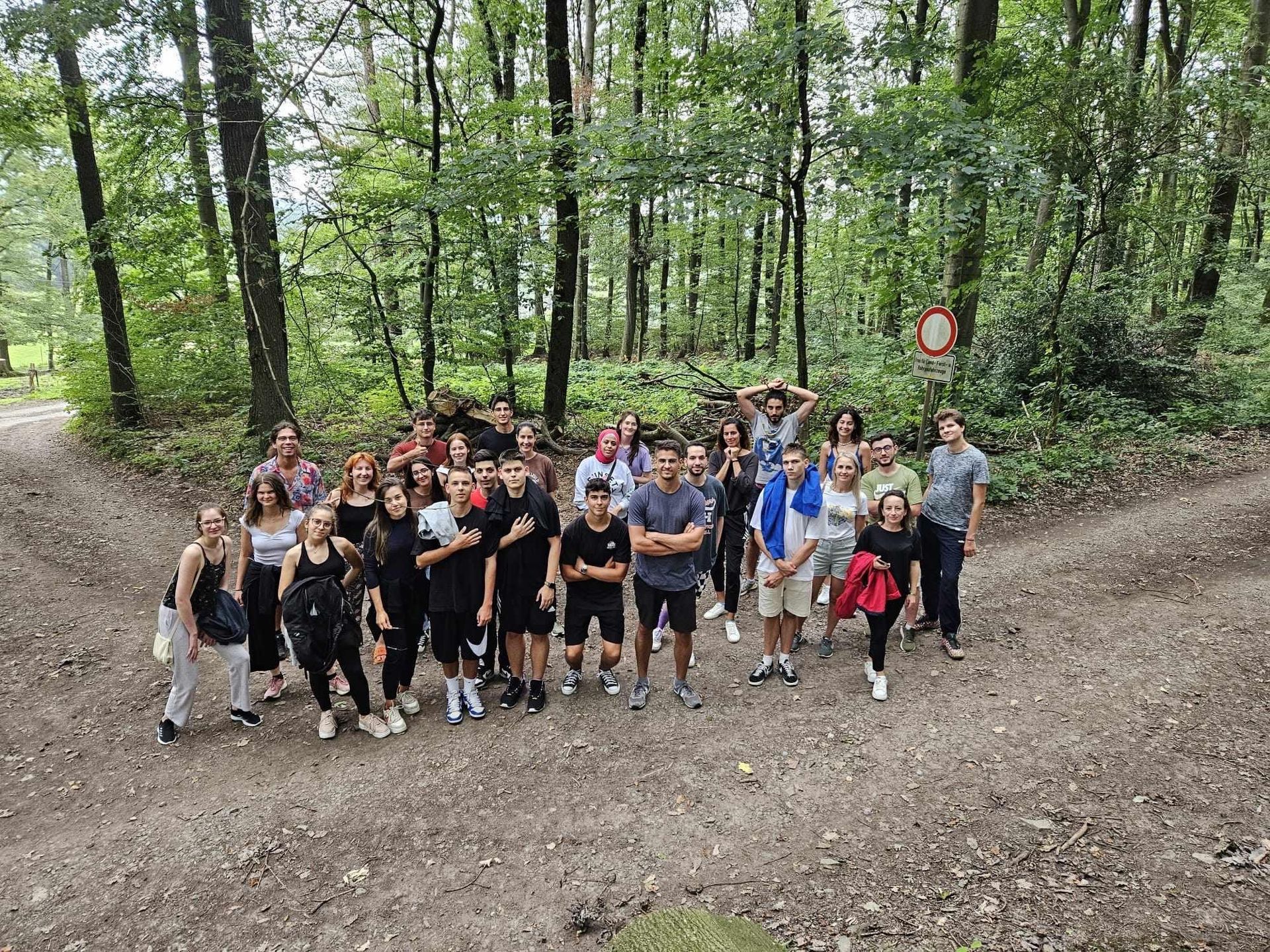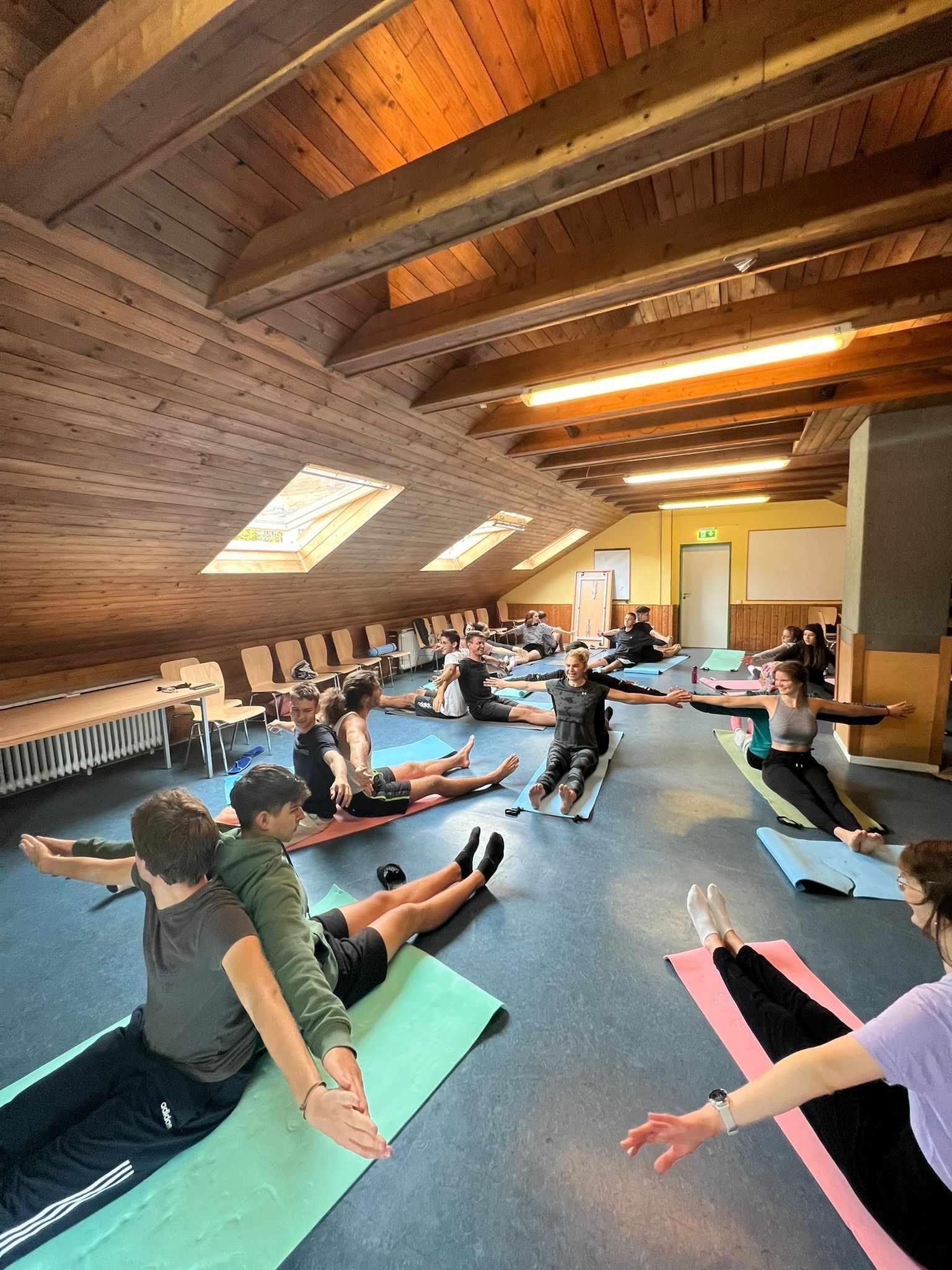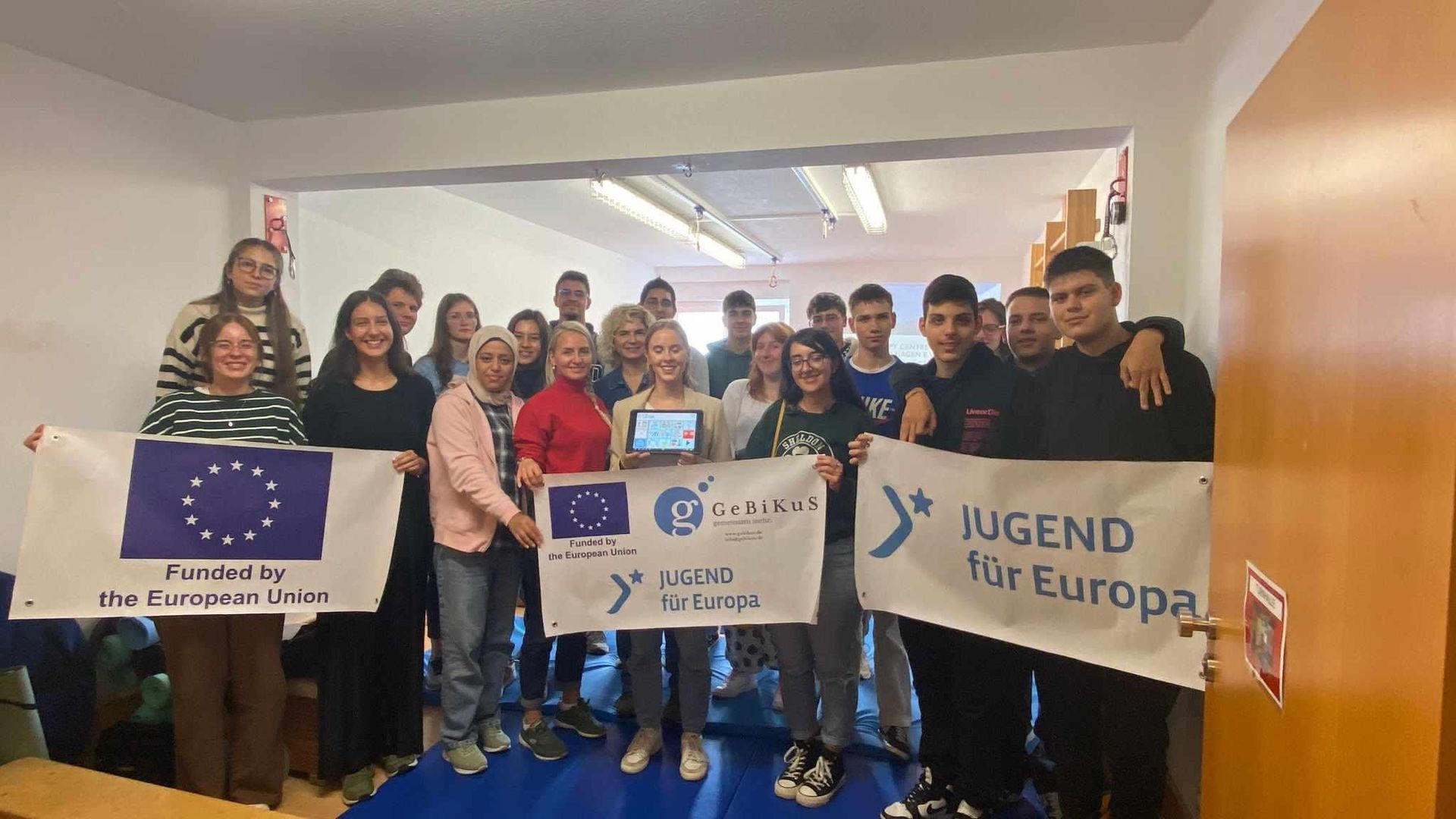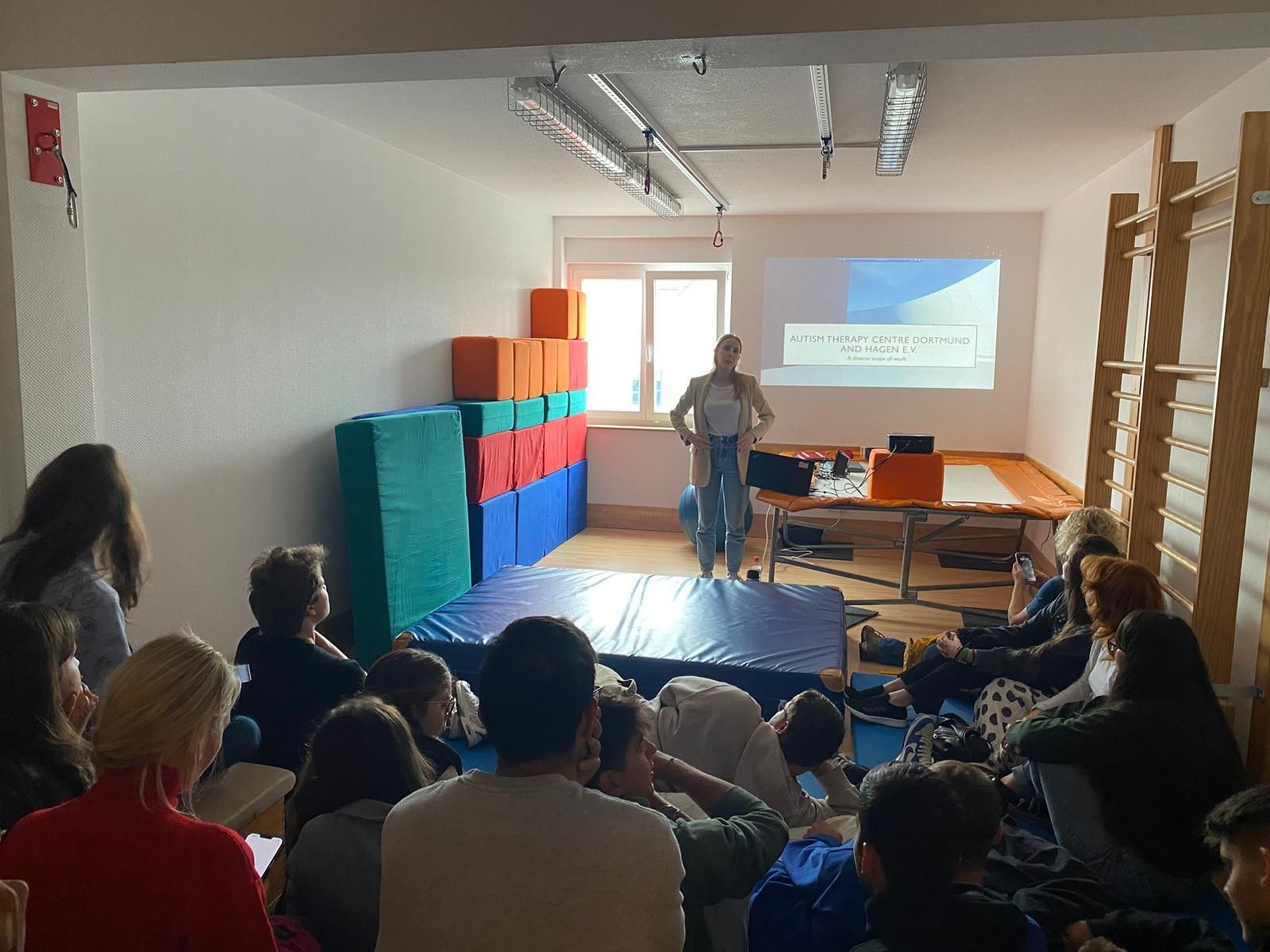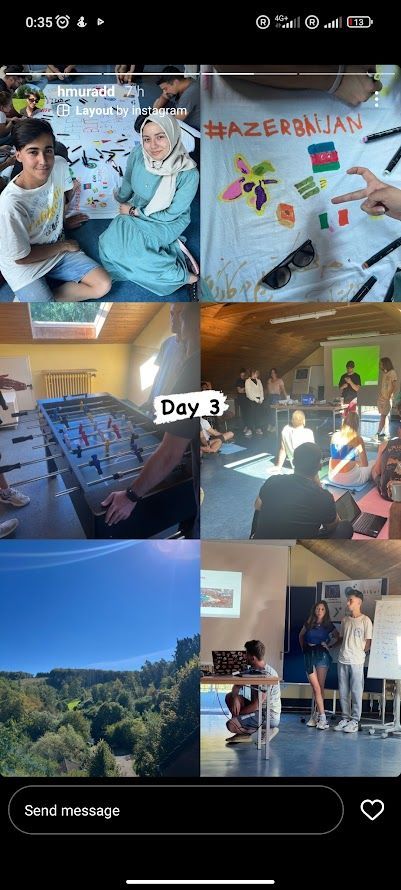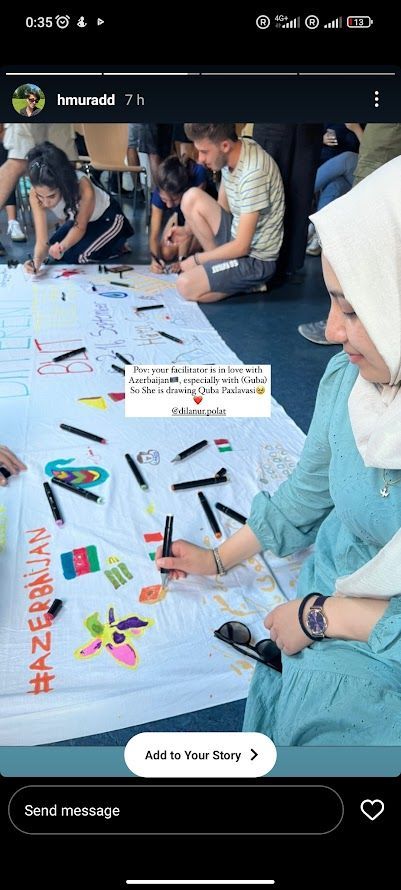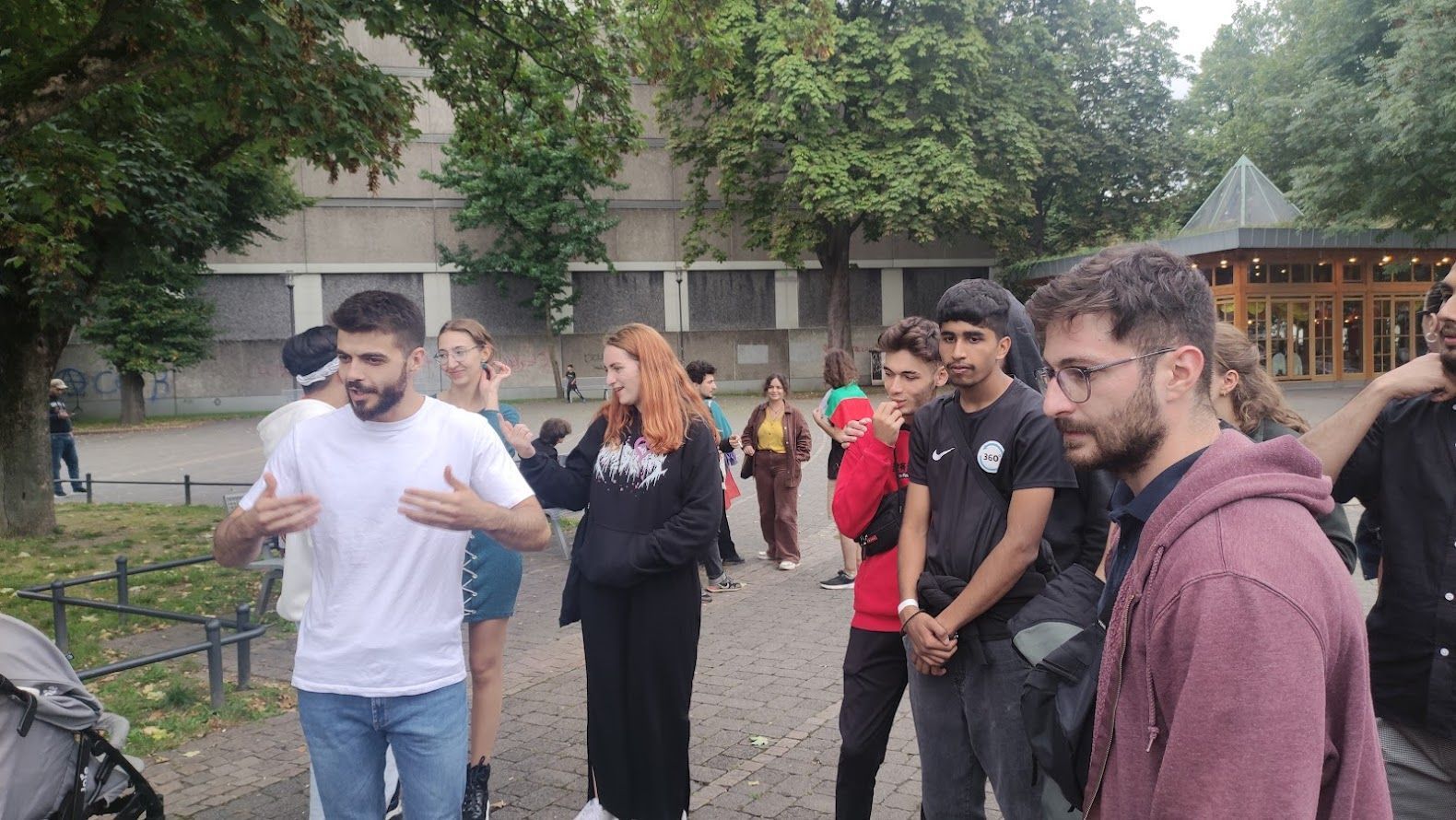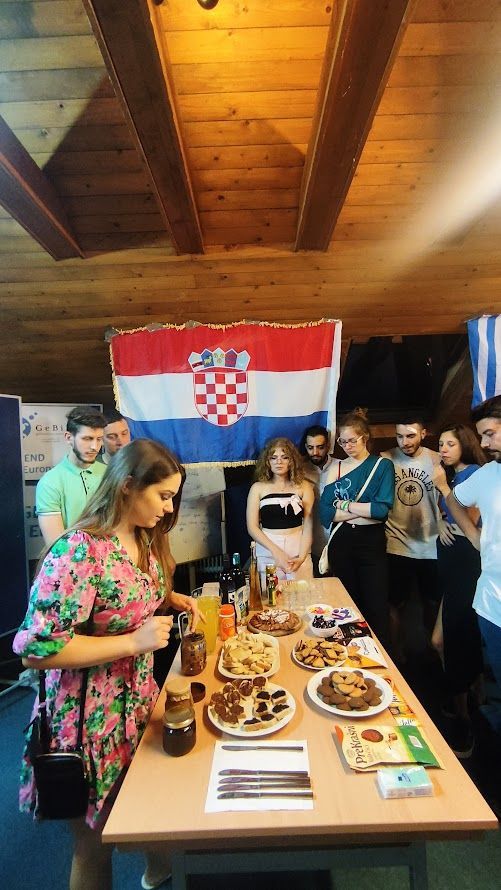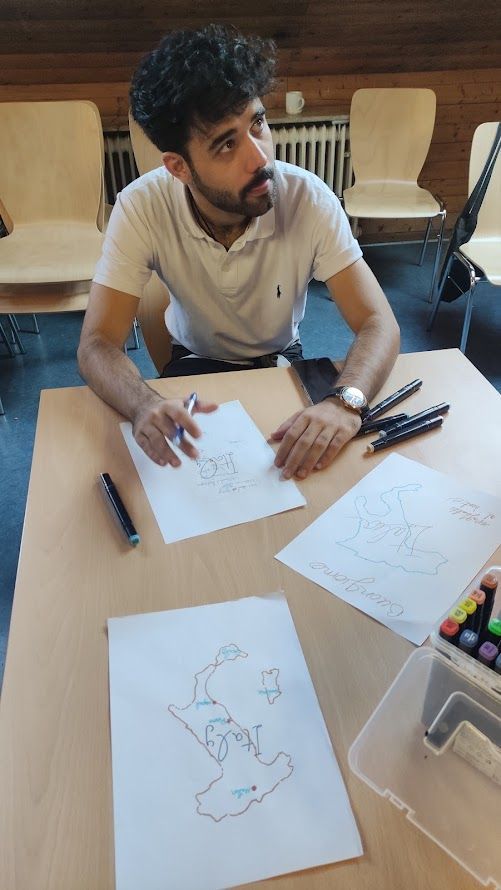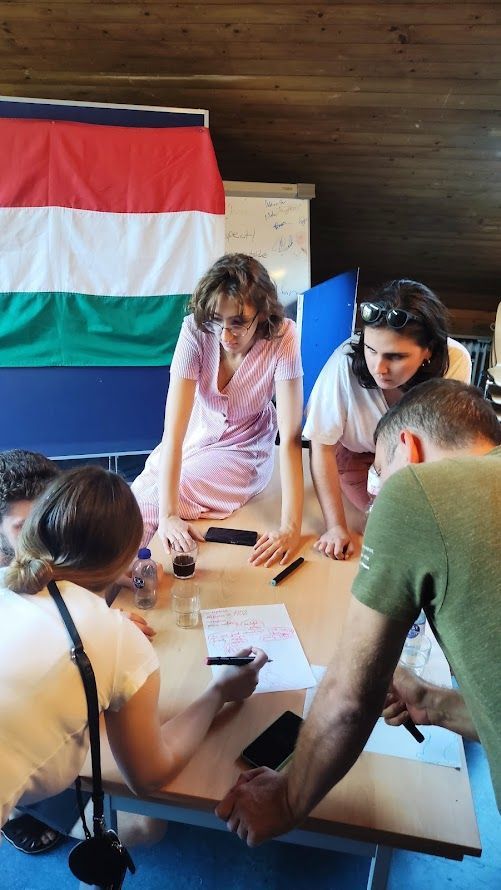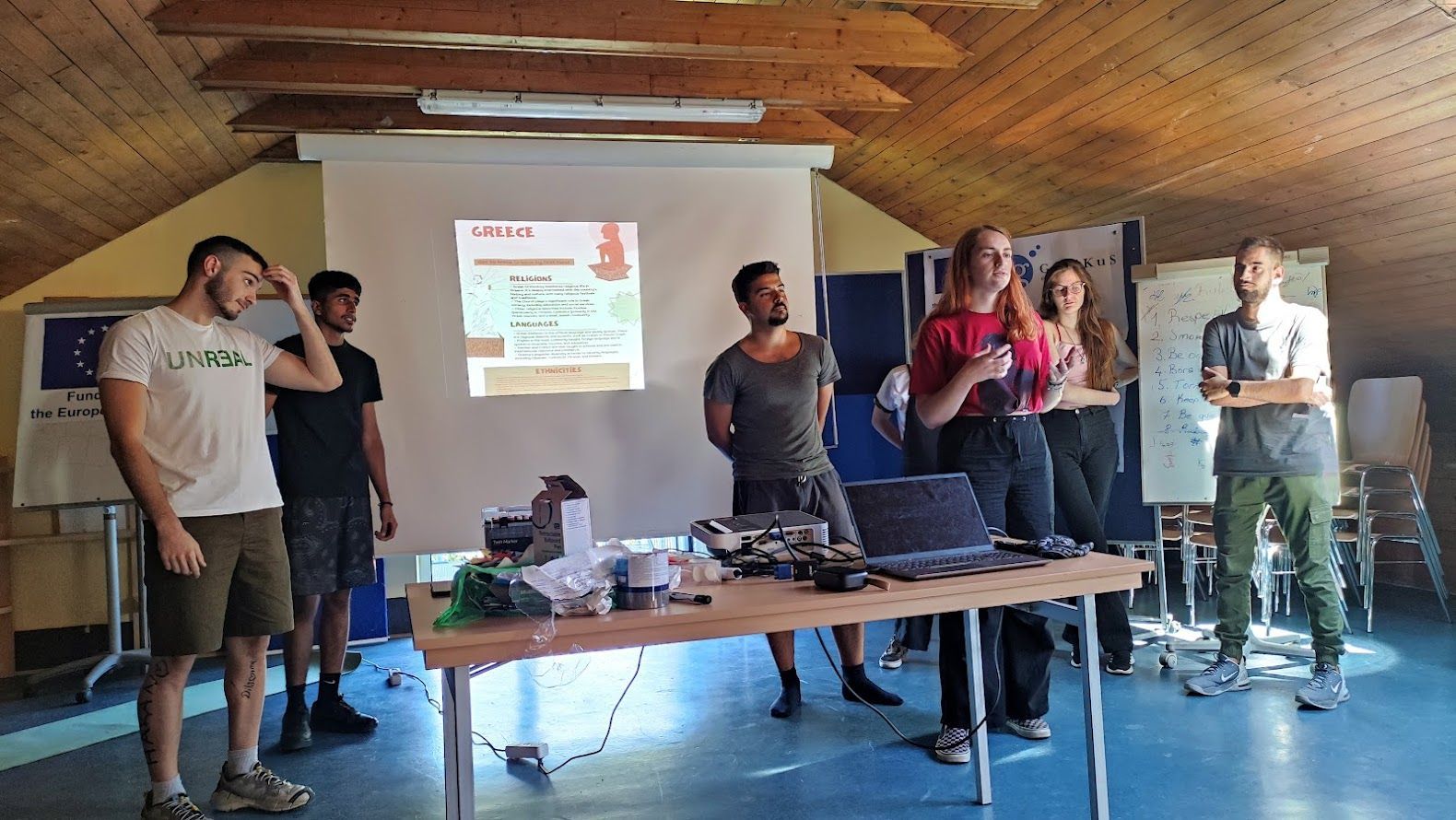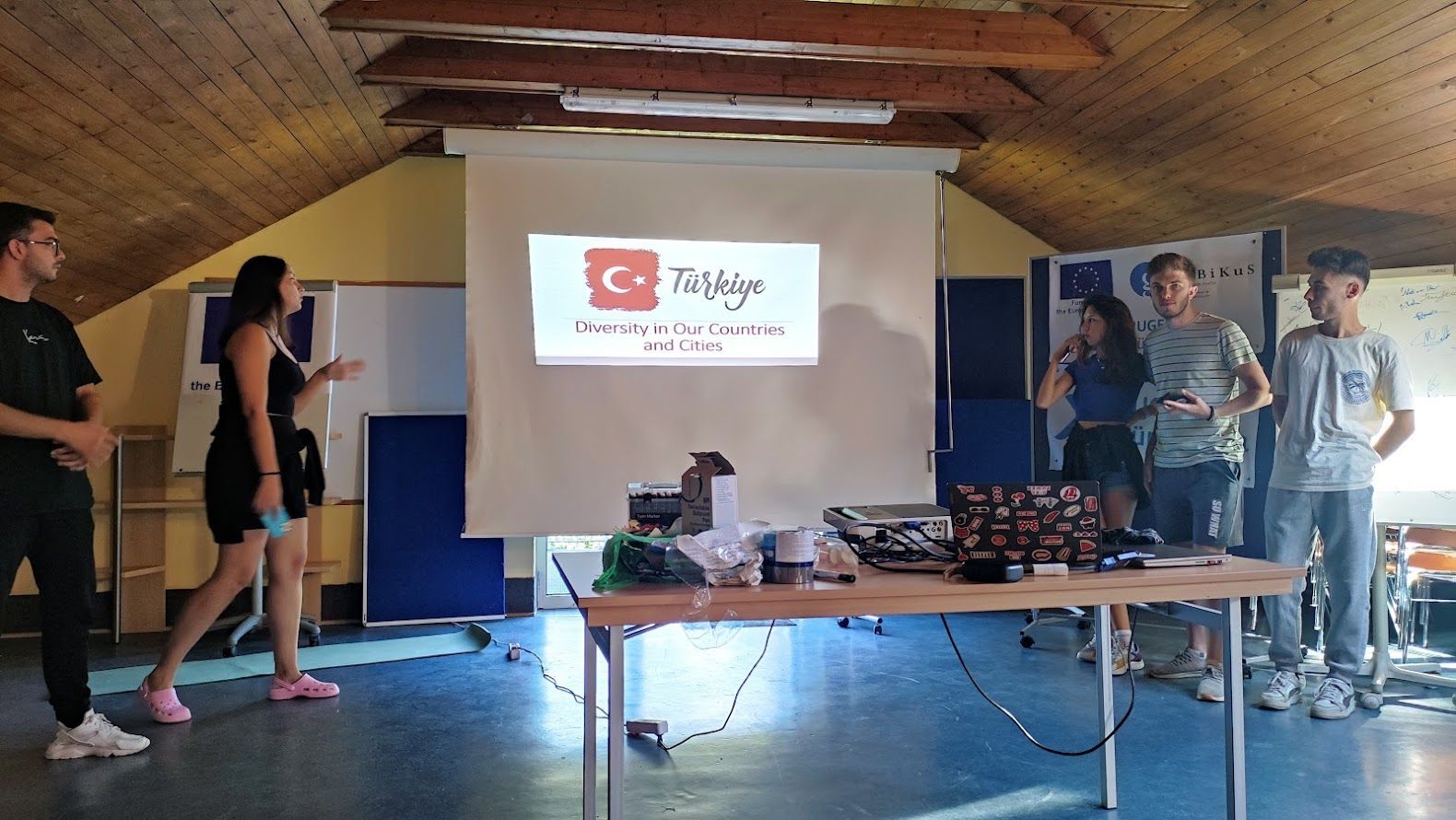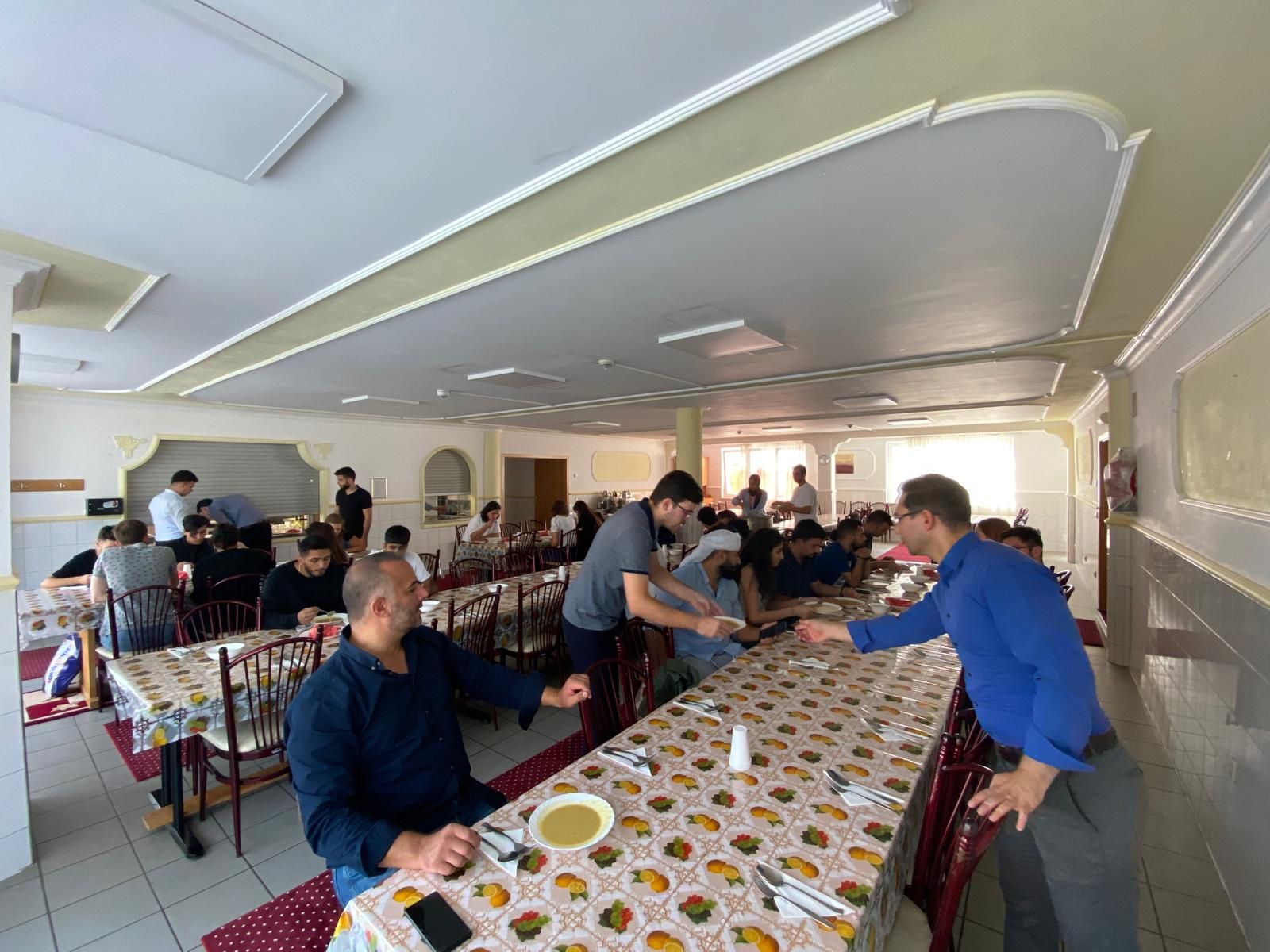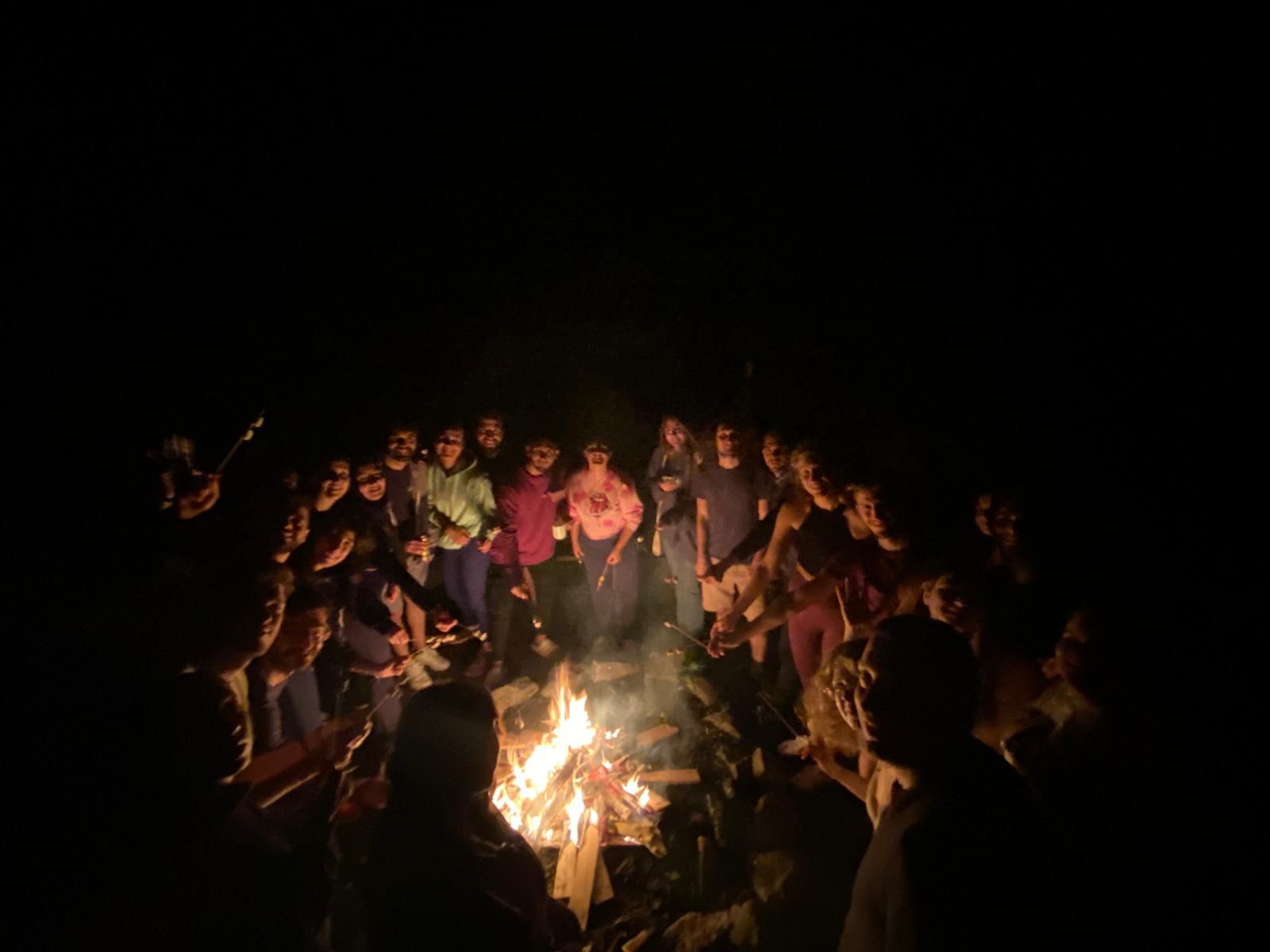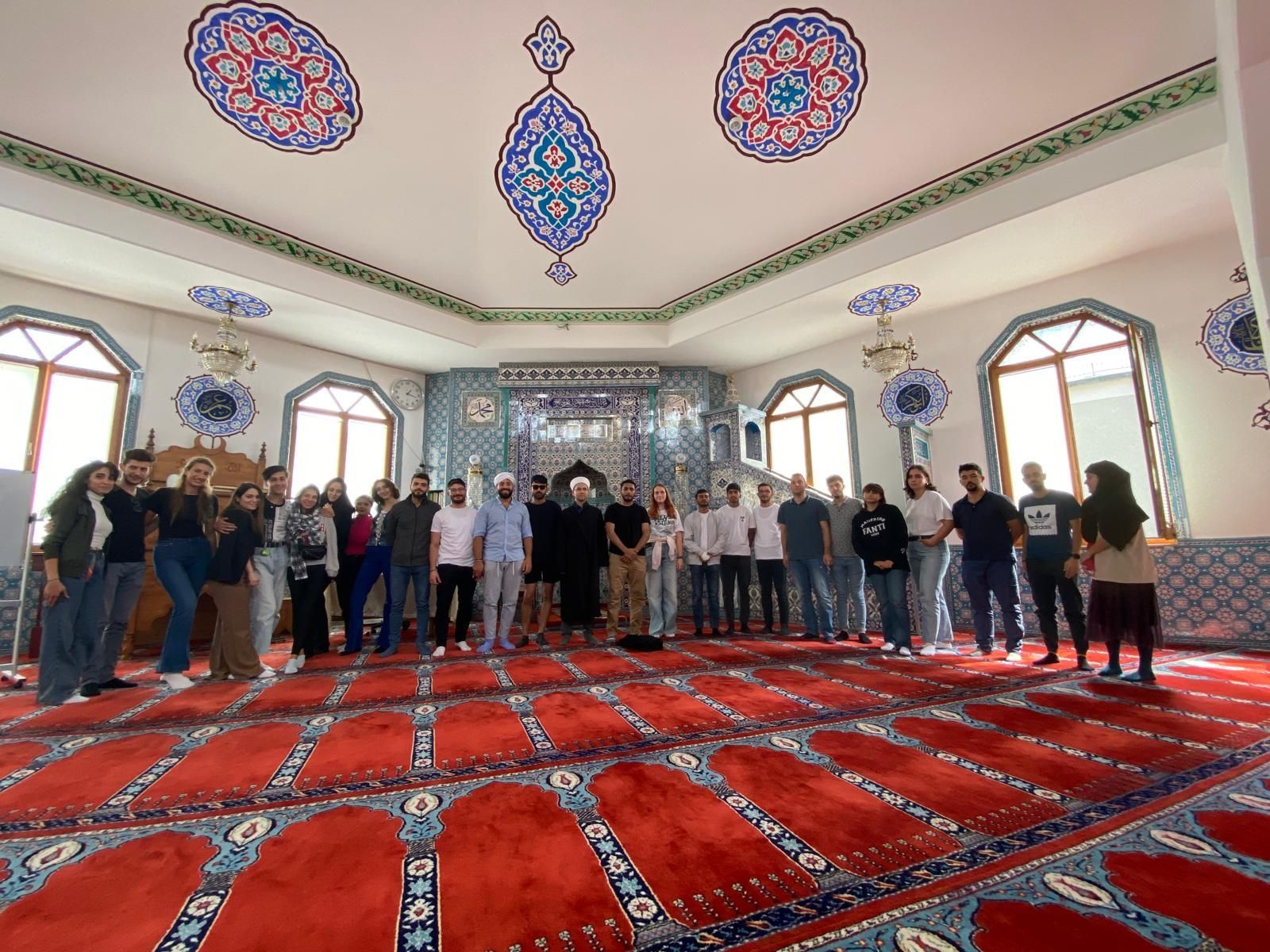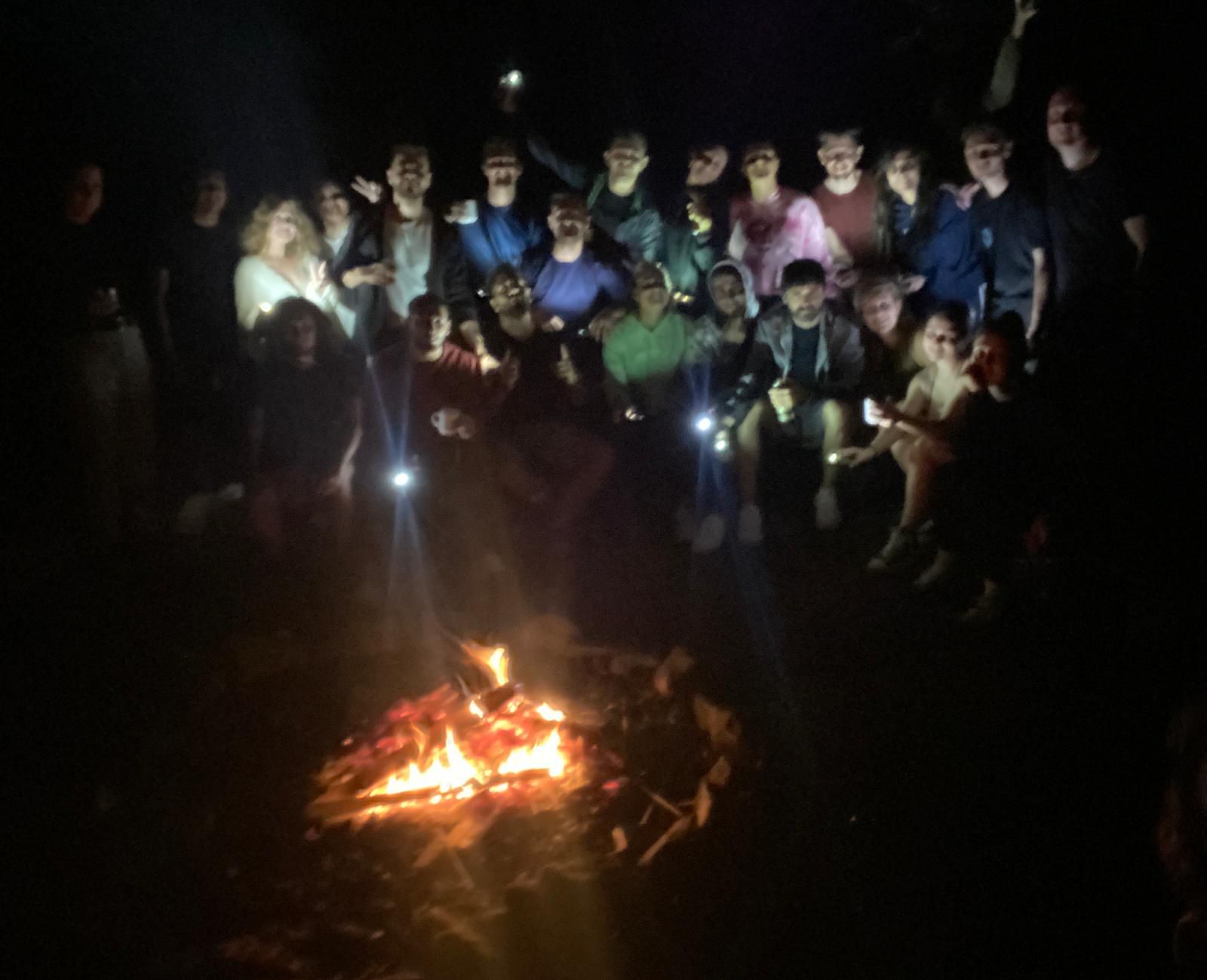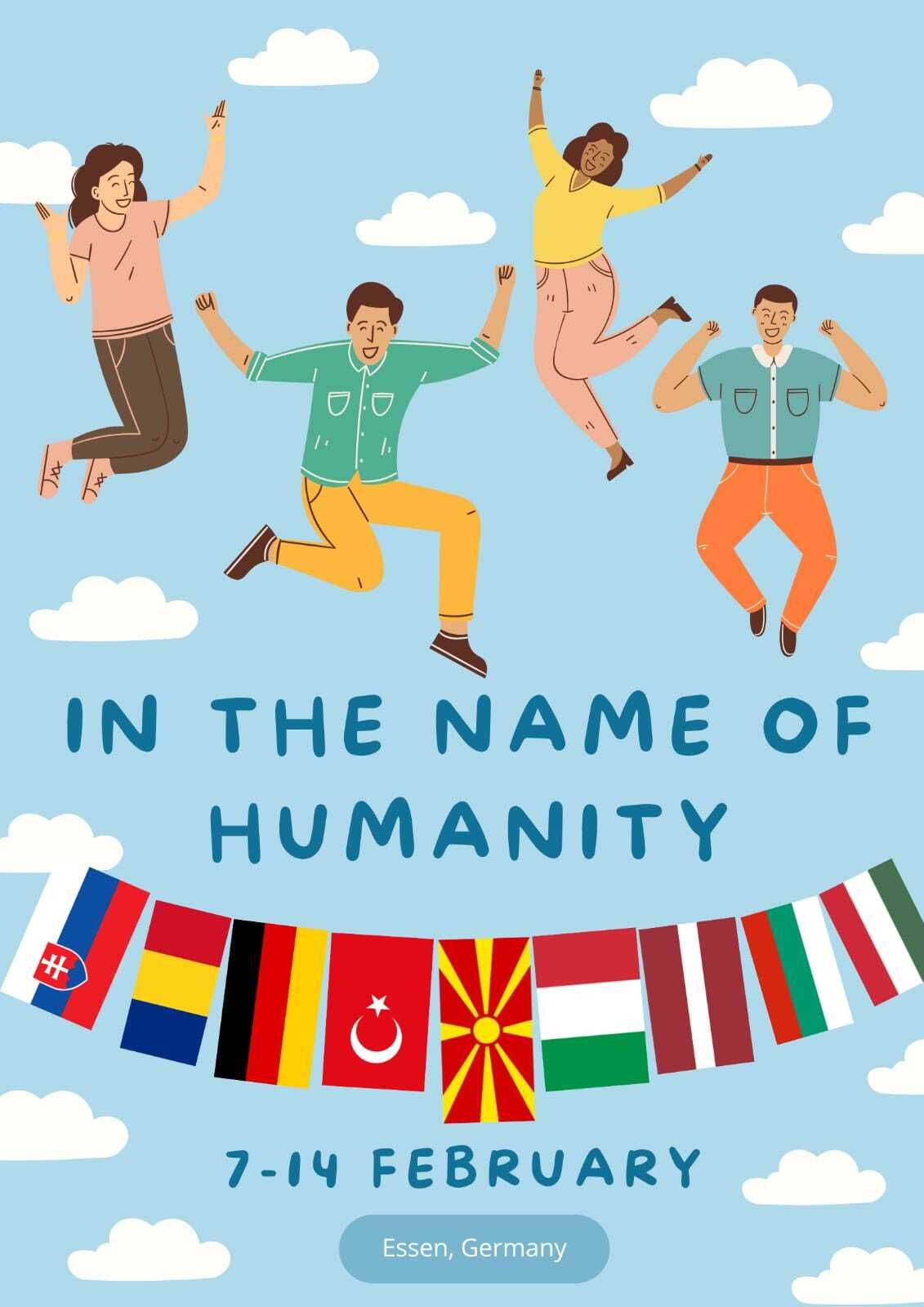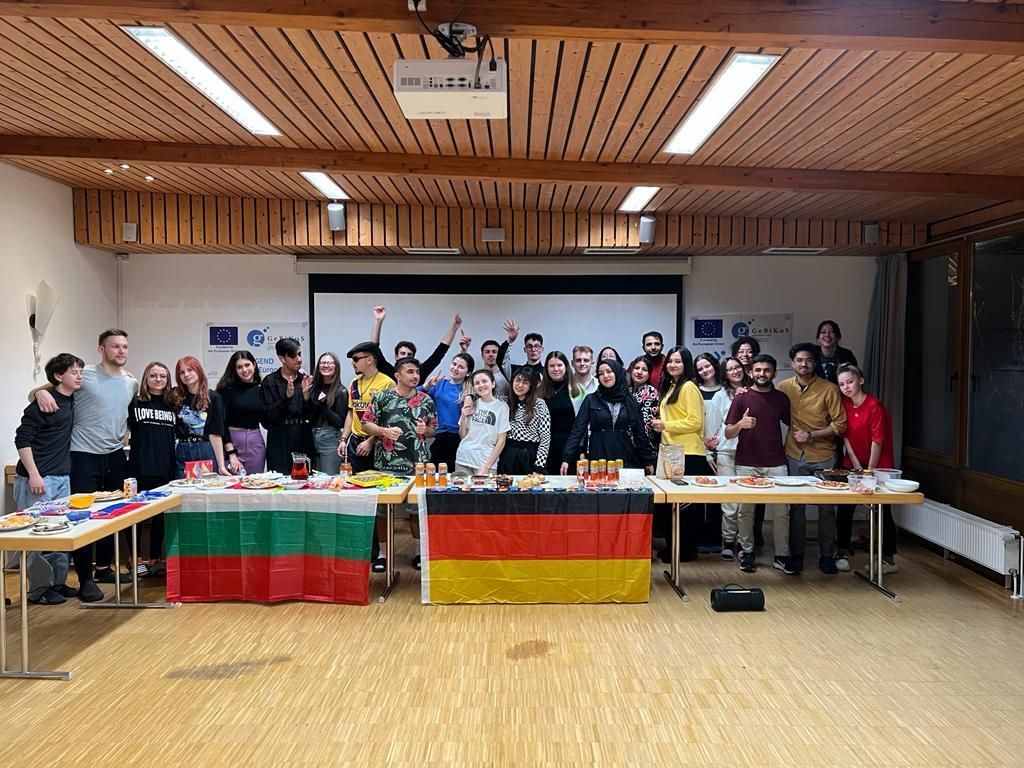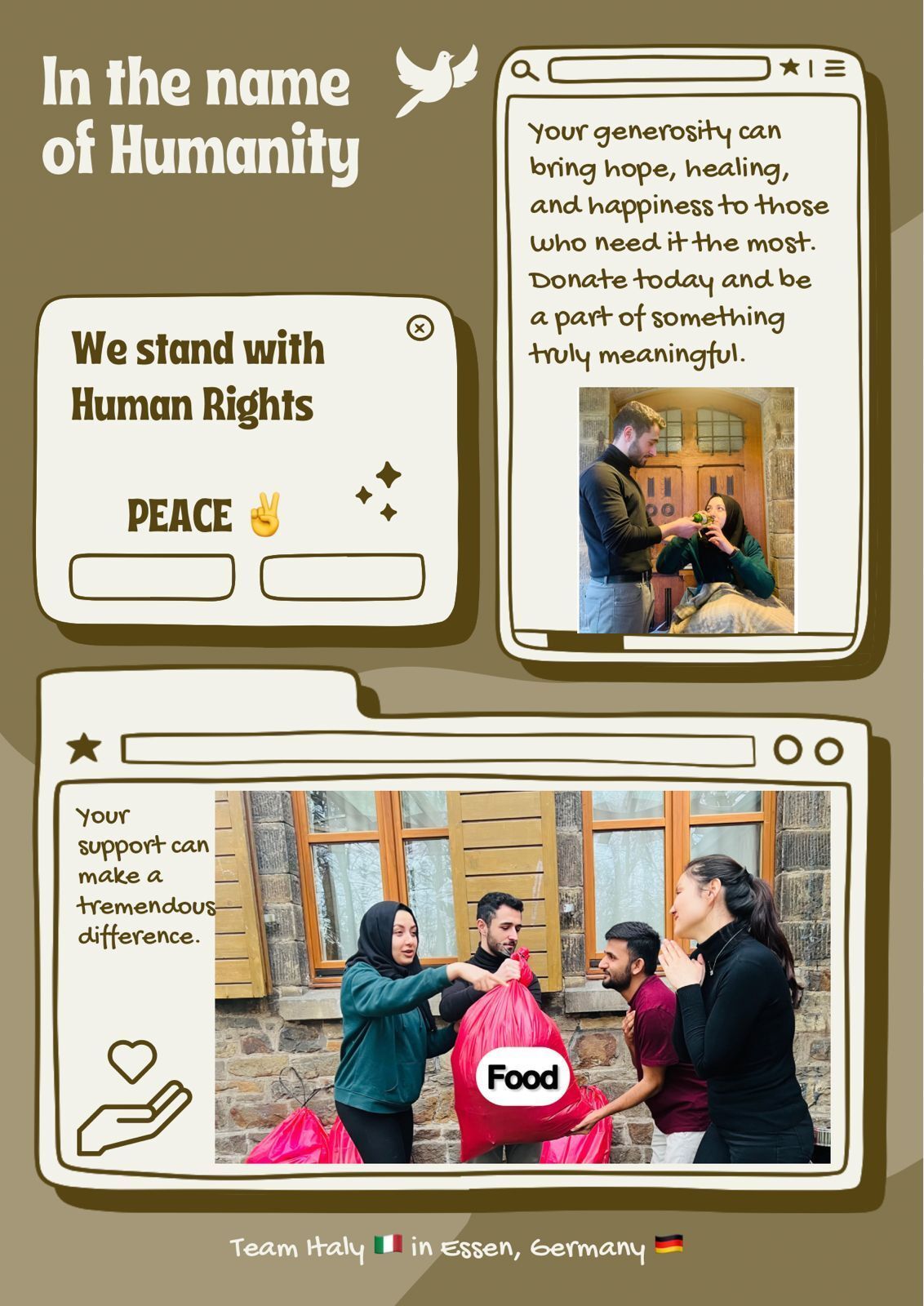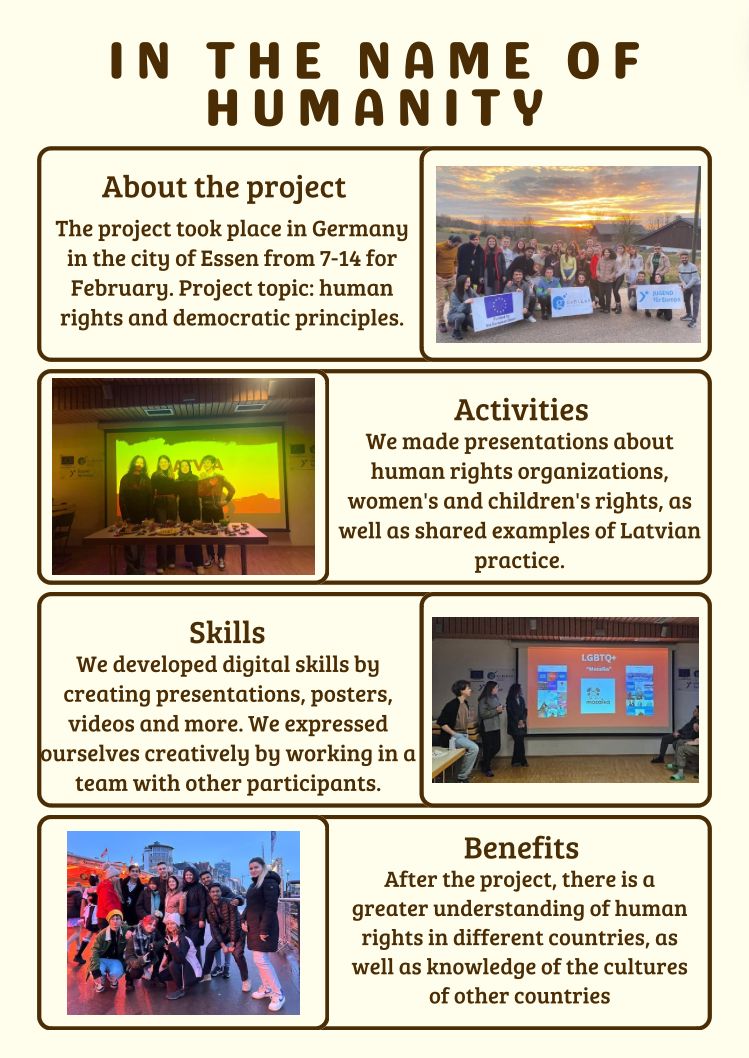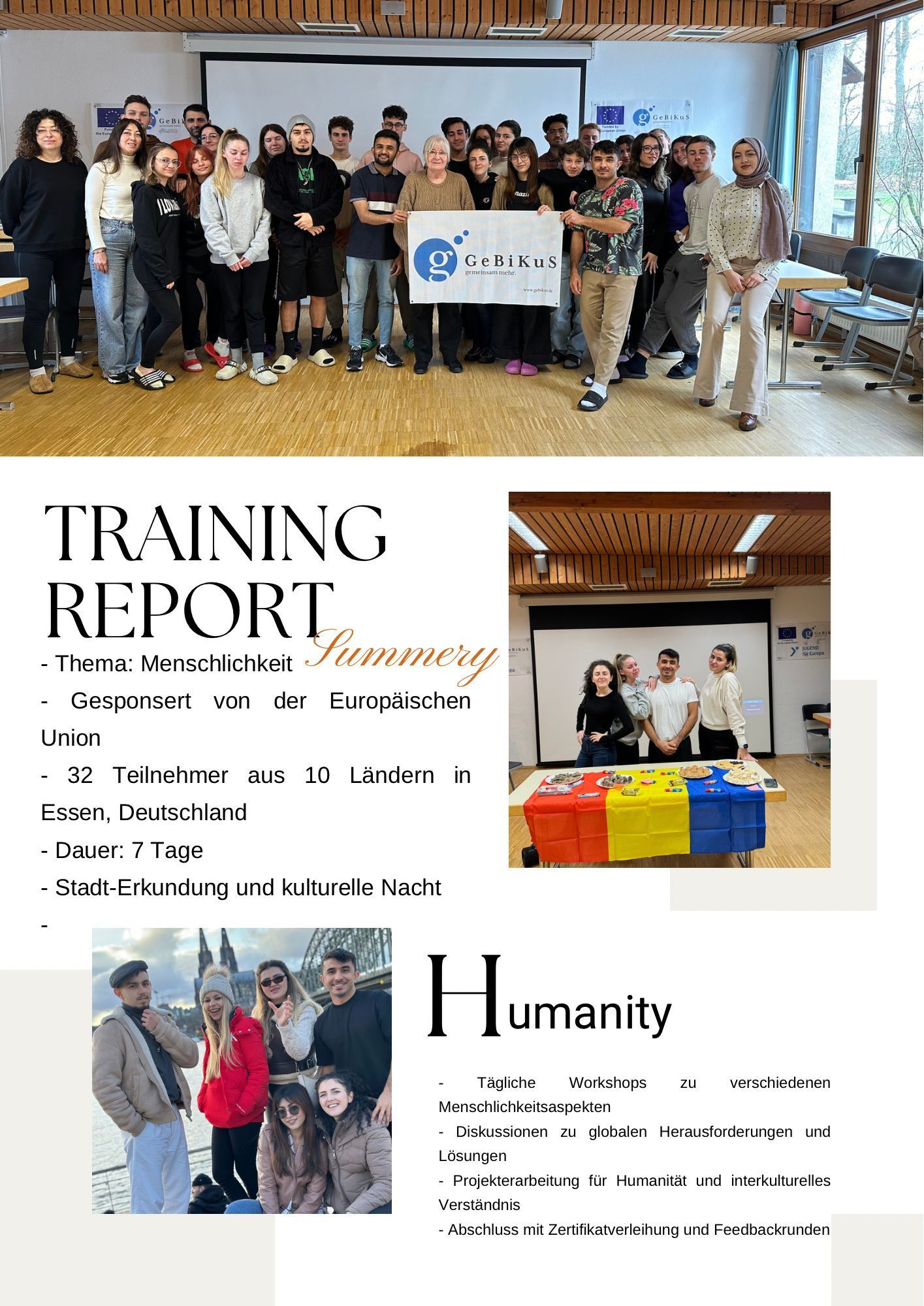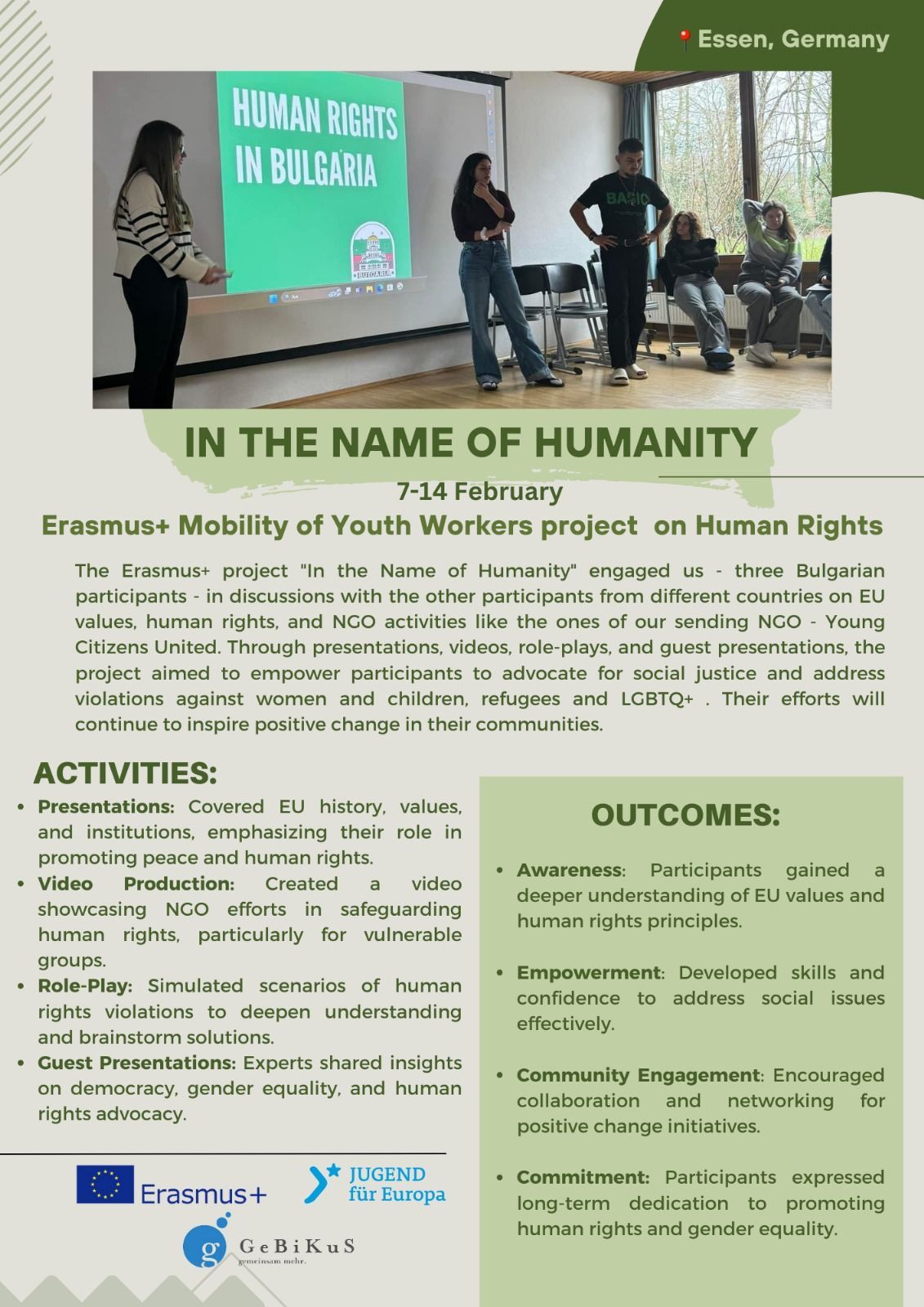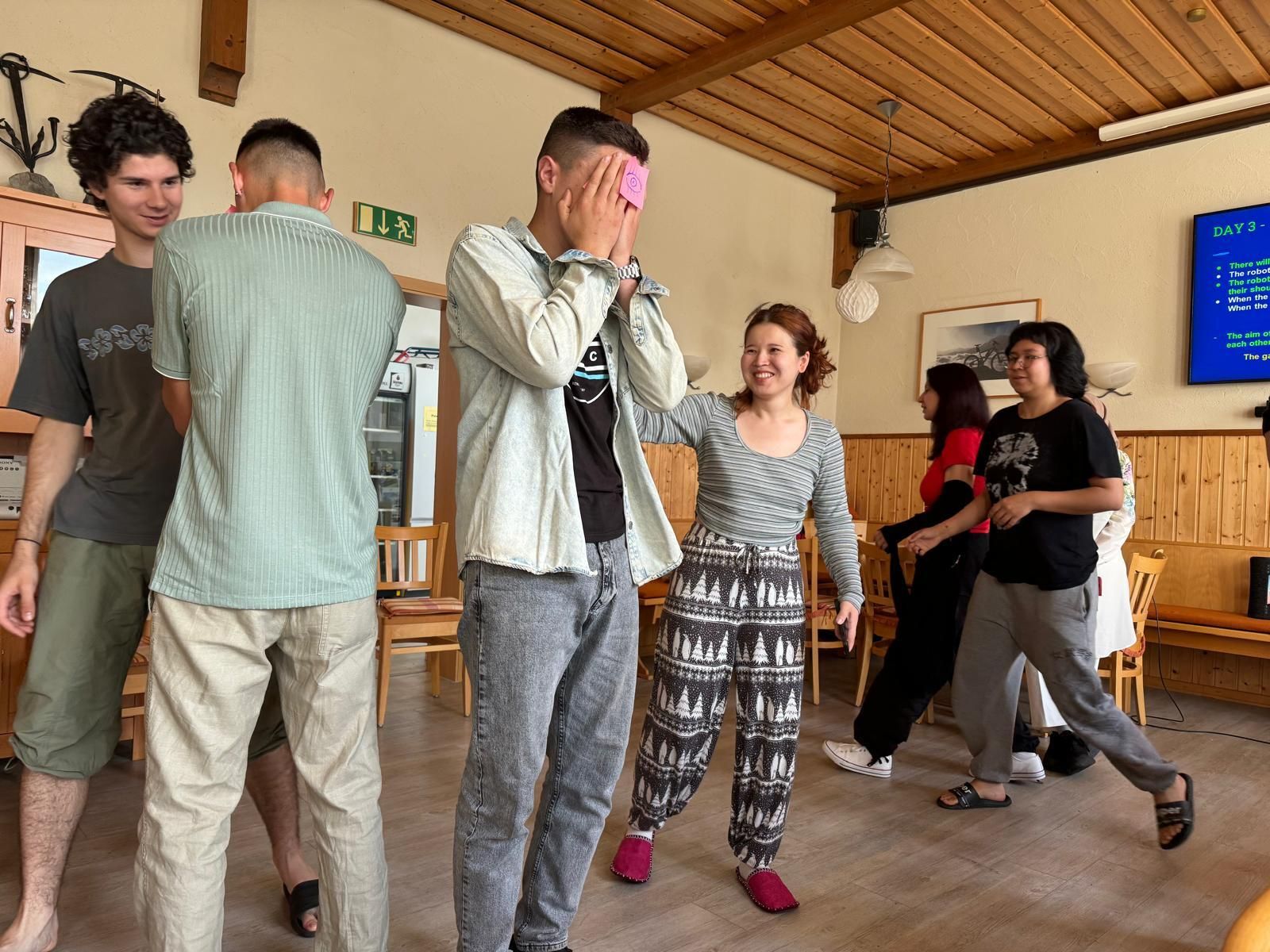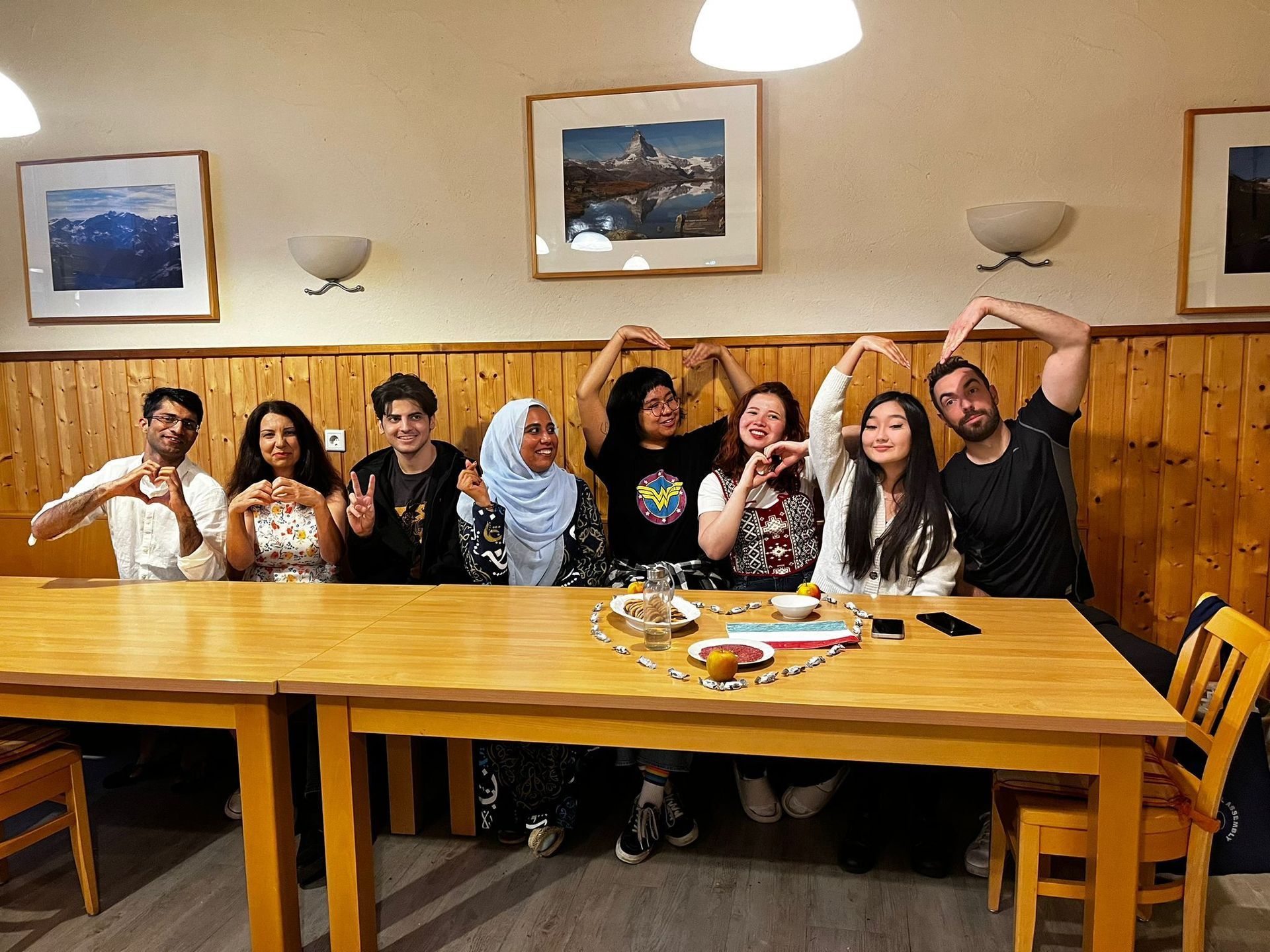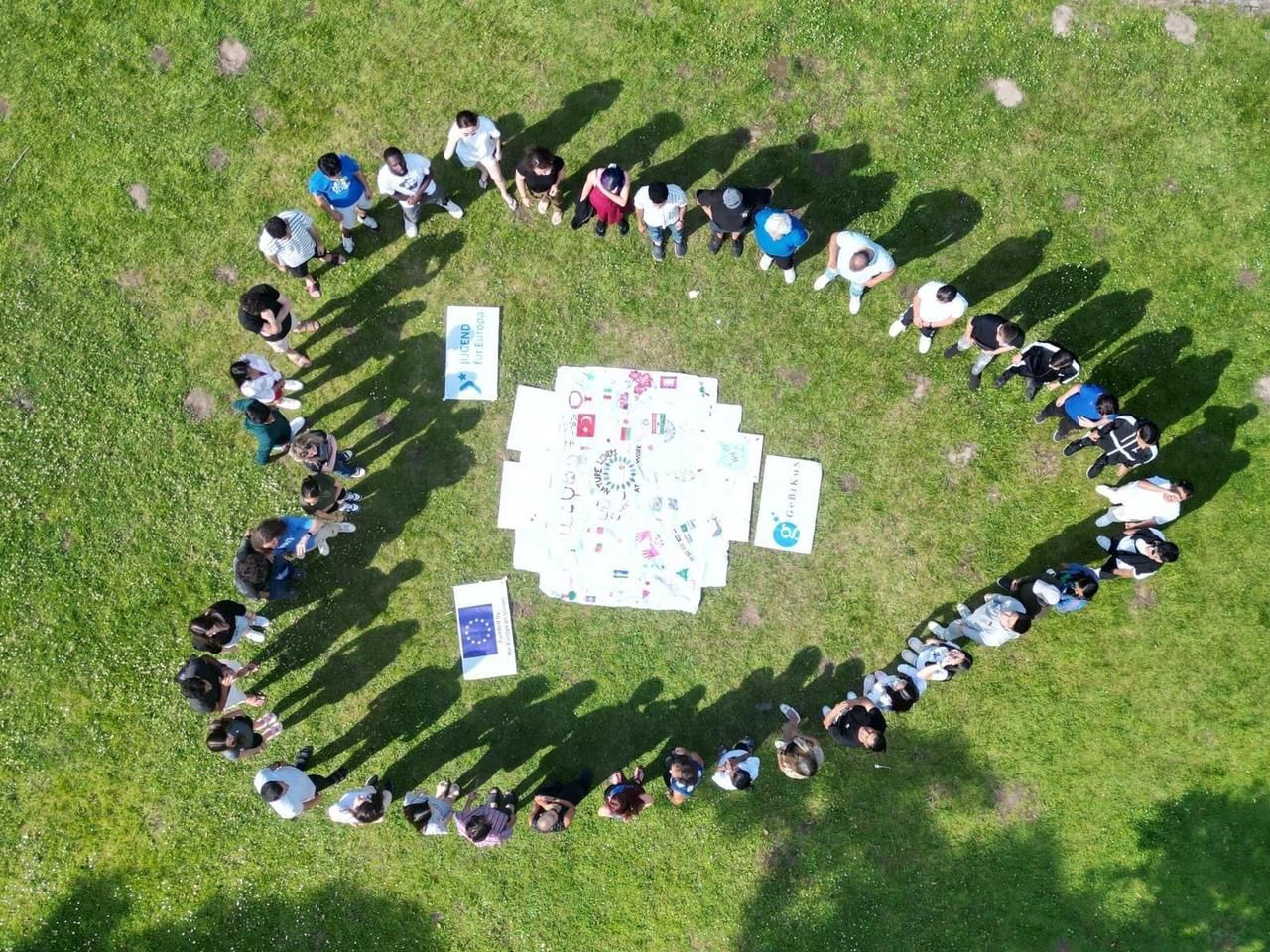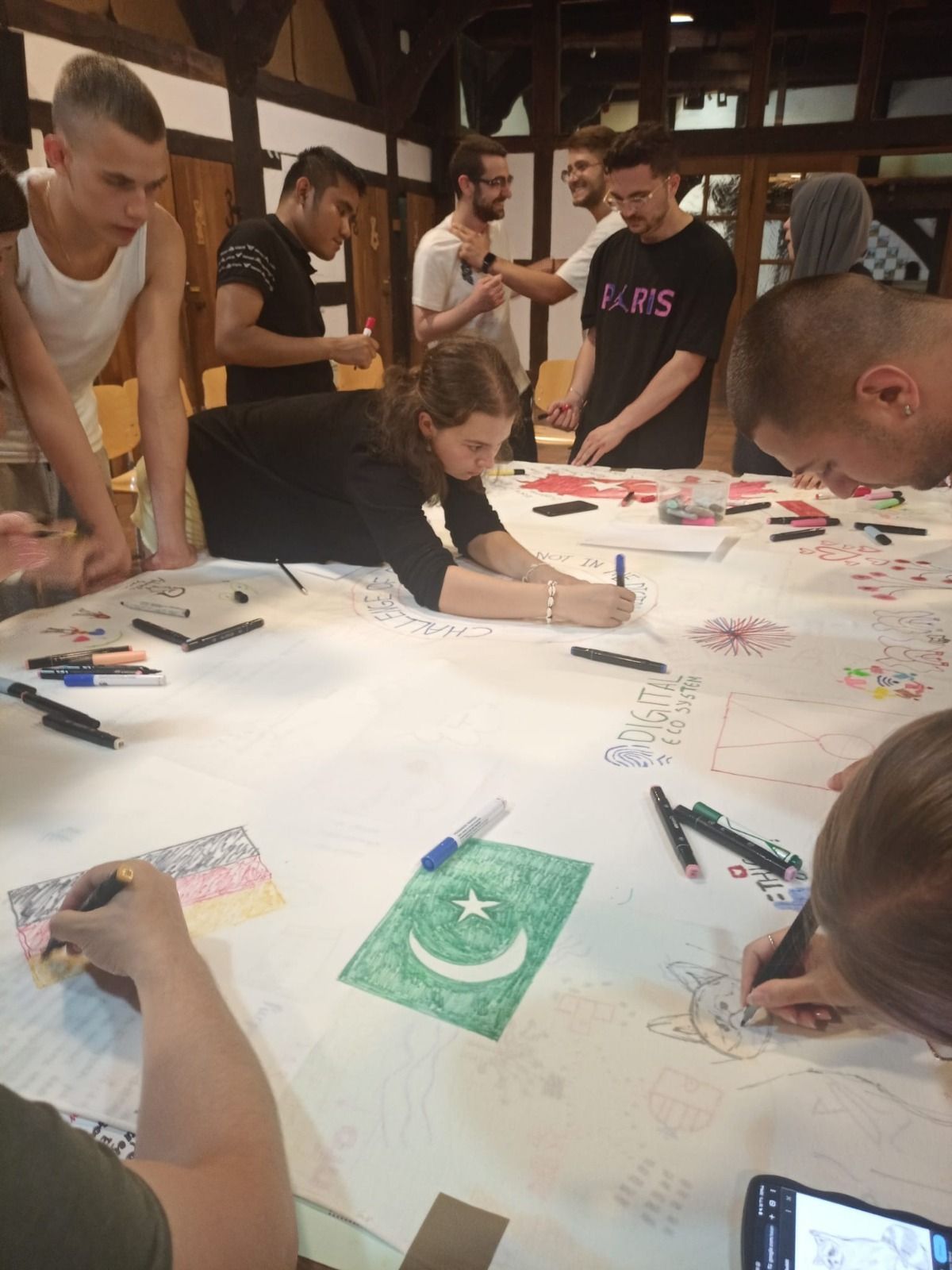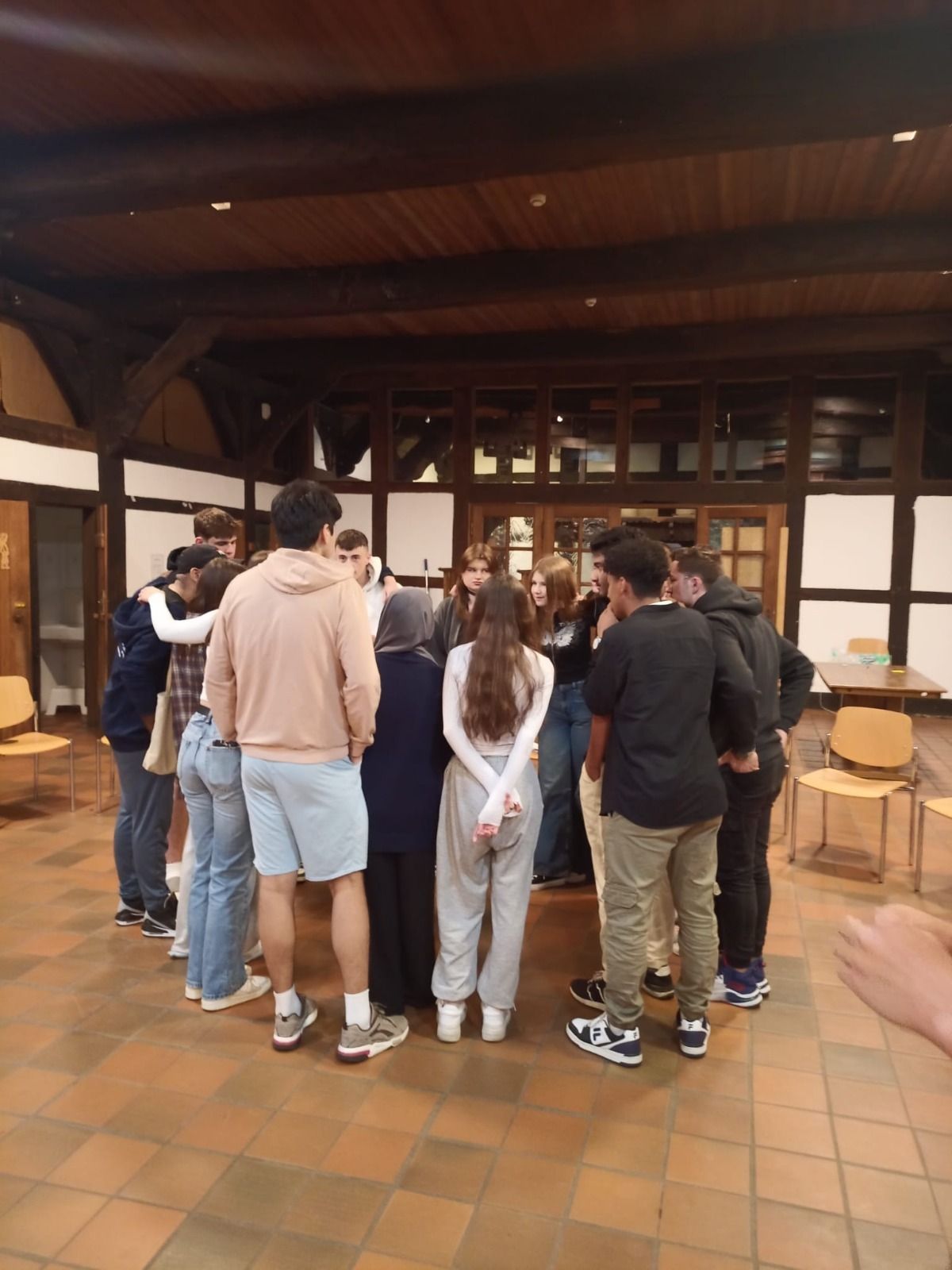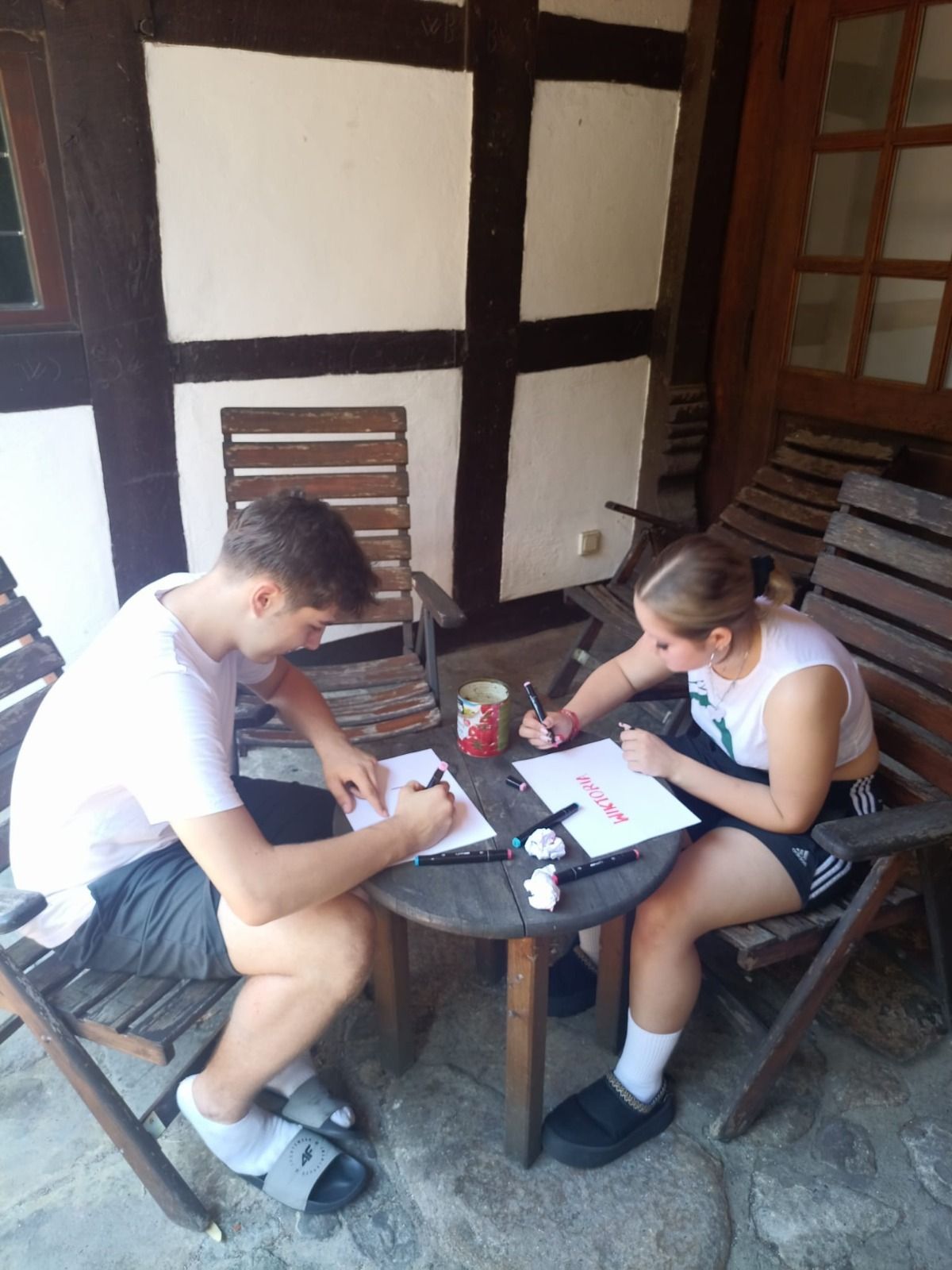ERASMUS+ PROJECTS
1st Project: Permaculture
From September 22nd to 30th, 2022, we, Gebikus eV, carried out the project “Permaculture for the Future (PE4F)” in Klotzenhof.
The project hosts 36 participants from Germany, Turkey, Spain, North Macedonia, Bulgaria and Hungary. This youth exchange project aimed to educate and inspire young people about the holistic design science of permaculture and highlight its importance for sustainable living. The overall aim of the PE4F project was to show youth that permaculture is a holistic design science and to increase the appreciation of permaculture through sharing experiences and information about sustainable practices. Participants have raised awareness of the importance of permaculture in promoting environmental sustainability and among local communities by promoting permaculture practices through outdoor activities.
At the end of the project, participants will have acquired detailed knowledge and practical skills in permaculture, enabling them to apply these sustainable practices in their own communities. The PE4F project aims to build a network of young permaculture enthusiasts who can support and inspire each other in their efforts towards environmental sustainability.
2nd Project: No to Hate Yes to Love
Prejudice and discrimination are one of the main elements preventing peaceful coexistence of groups with different characteristics. People have developed a habit of dividing people into groups based on ethnicity, religion, ethnicity, gender and appearance, and of disloving or even hating those who are different from them. Hatred and hostility towards what is different is the root of all violence, wars and genocides in the world. The September 11 attacks, the economic crisis that began in 2008 and the Arab Spring movements that swept the Middle East and North Africa in 2009 were the turning points of this trend. The increasing support for far-right ideologies with racist and populist rhetoric in the politics of European nations after 2000 has almost normalized the increase in xenophobia due to the negative impact of the economic crisis on critical welfare.
In this context, within the project we addressed the following questions: factors causing xenophobia, social problems caused by xenophobia, tolerance and respect towards people from different backgrounds and identities, basic human values and measures to solve problems.
Our overall goal was to reduce xenophobia among young people in order to create a more livable Europe.
Concrete goals were:
1- Communicating the factors that cause xenophobia to young people
2- Promoting tolerance and respect for differences among young people from different backgrounds and identities
3- Communicating the values that form the foundation of society to young people
4- Developing solutions to prevent xenophobia
5- Raising awareness among young people and local communities about the negative consequences of xenophobia
The project was focused on several main objectives that are in line with the Erasmus priorities. These objectives included improving opportunities for youth work and non-formal education, supporting youth organisations at local and national level, promoting the role of volunteering in raising awareness, encouraging intergenerational solidarity and international volunteering, recognizing youth work and youth centres as tools for integration and raising young people's awareness of global issues.
By involving participants from different countries, the project aimed to produce meaningful results and increase environmental awareness on a broad scale. The international collaboration highlighted the importance of using eco-friendly bags and highlighted the far-reaching environmental impact of individual choices. In addition, the project offered European youth the opportunity to understand and engage with global problems and contribute to solving them.
You can also follow our journey via the links below;
https://www.instagram.com/p/Cn4I0DfK9CO/?igshid=MDJmNzVkMjY=
3rd Project: Youth in Action for the Environment
Our Erasmus project to raise awareness of climate change was successfully completed in Essen
We successfully implemented our Erasmus project in Essen on climate change awareness and action. This project brought together participants from eight different countries: Germany, Hungary, Turkey, Spain, Portugal, Romania, the Netherlands and Bulgaria. The project was divided into two main steps: a Pre-Planning Visit (APV) from 31 January to 3 February 2023.
The main objective of our project was to increase the motivation and competence of young people in the fight against climate change and to contribute to reducing climate change by raising public awareness of environmental impacts. We wanted to equip young people with the knowledge and skills they need to effectively address climate issues.
Throughout the project, we engaged participants in various educational and practical activities to improve their understanding of environmental issues and climate change. We taught them environmental education, involved them in practical activities and educated them on the urgent need to protect the environment. This comprehensive approach aimed to create a deeper awareness among young people of the challenges posed by the lack of knowledge about climate and the environment.
At the end of our project, the young participants had developed a stronger awareness of environmental challenges and the importance of sustainable practices. They were equipped with the motivation and competence to fight climate change and protect the environment, and ready to implement what they had learned in their respective countries. Our project in Essen has successfully built a network of environmentally conscious young people who are committed to making a positive impact on our planet.
This initiative not only improved participants' knowledge and skills, but also contributed to broader efforts to mitigate climate change and protect the environment. Our project in Essen is an important step forward in empowering young people to take action on climate change and promote sustainability.
4th Project: Mindfulness for ASD
From August 23rd to 31st, we participated in the TC “Mindfulness for ASD” in Hagen, funded by the German National Agency and the EU within the framework of Erasmus Youth Projects. The aim of the project was to learn about the difficulties that children with autism face in their everyday lives and how yoga can have a positive impact on their lives. In the morning yoga sessions, we learned different types of yoga and breathing techniques for stress relief. We learned many new things about the subject and even visited the local center for people with ASD. Our trainer Ayşe Ay led the sessions and taught techniques for mindfulness and well-being.
We learned a lot of new things and information about people with ASD - how they behave, how we can help them, the different types of diagnoses, their behavior and the exercises they do at their therapy appointments. What we took away from the project is getting to know cities in Germany, learning about people with ASD, their behavior and how we can help them.
We highly recommend Erasmus and believe that every young person should take part in it at least once. It is a great way to get to know new cultures, make lots of friends around the world and create unforgettable memories.
5th Project: We are different, but together
Youth exchange project “We Are Different but Together” celebrates cultural diversity and tolerance in Hagen, Germany
From September 3 to 16, 2023, the youth exchange project "We Are Different but Together" took place in Hagen, bringing together 48 participants from six countries: Italy, Turkey, Greece, Bulgaria, Croatia and Hungary. The aim of this 14-day program was to celebrate cultural diversity, promote mutual understanding and strengthen tolerance among young people from different backgrounds. Through interactive activities and cultural exchange, the project encouraged participants to embrace their role as cultural ambassadors and contribute to a more inclusive, harmonious global community.
objective of the project
The main objective of the project was to promote multiculturalism and increase tolerance towards other cultures. Specific objectives included:
1. Raising awareness of different religions and cultures in order to reduce prejudices and promote cultural cohesion.
2. Raising awareness of how cultural similarities and differences contribute to shared world heritage.
3. Introducing the concept of multiculturalism and exploring cultural elements such as lifestyles, dances and music from the partner countries.
4. Motivate participants to appreciate cultural wealth and inspire them to become cultural ambassadors.
implementation and activities
The project used non-formal educational methods, with activities aimed at promoting understanding and cooperation:
Orientation and cultural introduction: Icebreakers, team-building exercises and discussions helped participants reflect on and break down stereotypes.
Cultural presentations and discussions: Participants from each country presented their cultural traditions through performances of dance, music and culinary arts.
Creative and experiential learning: Activities such as “One Language, One Person” and field trips to religious sites enabled participants to explore and express their thoughts on multiculturalism.
Interactive cultural exchange: Folk song sessions and a “MasterChef Europe” cooking activity promoted cultural exchange through shared experiences.
Team building and reflection: Group activities such as the “flash mob” and daily reflection sessions helped to integrate the day’s learnings.
Field trips and hands-on engagement: Visits to local cultural sites provided real-world insights into diverse cultural practices.
Participant
The 48 participants, aged between 16 and 30, represented a wide range of cultural backgrounds, including people from geographically, economically and socially disadvantaged backgrounds. This diversity was key to the success of the project and enabled a rich exchange of perspectives and experiences.
Effects and Results
“We are different, but together” had a lasting impact on the participants and contributed to significant changes in their attitudes and behaviors:
Improved multicultural understanding: Participants gained a deeper understanding of other cultures, reducing prejudice and promoting integration.
Empowerment as Cultural Ambassadors: The project inspired participants to promote multiculturalism in their home communities.
Strengthened social ties and networks: Participants built lasting friendships and global networks that foster a sense of belonging beyond the project.
Creative expression and critical thinking: Participants expressed their cultural identity creatively and stimulated critical thinking about the role of multiculturalism in society.
Most important achievements
Breaking down stereotypes: The project has successfully broken down cultural stereotypes, for example between Turkish and Greek participants, who have formed close friendships.
Cultural exchange: Participants shared their unique cultural traditions, which promoted mutual learning and made visible the contribution of each culture to World Heritage.
Ongoing engagement: After the project, participants continued to engage with multicultural issues and share their learnings and traditions in their home communities.
Inclusiveness: The project actively included participants from different backgrounds and provided a platform for all voices.
Outreach and dissemination: The results were disseminated through social media and local events, inspiring others to participate in multicultural initiatives.
plans for the future
Building on the success of 'We are different, but together', the project partners plan to continue collaborating on initiatives to expand multicultural education. Future projects will create more opportunities for young people to engage in intercultural dialogue and promote tolerance and cultural exchange on a larger scale.
Conclusion
We Are Different but Together was a transformative experience for all participants, giving them the tools, knowledge and motivation to work for multiculturalism. Through creative expression and interactive exchange, the impact of the project extended well beyond its 14-day duration. Upon returning to their home countries, participants are equipped to work for integration and harmony in their communities and promote a world that values cultural diversity.
6th Project: In the Name of Humanity
Training course "In the Name of Humanity" to promote human rights work in Essen, Germany
The training course “In the Name of Humanity” took place in Essen, Germany from 7 to 14 February 2024, bringing together 32 participants from nine countries: Germany, Bulgaria, Hungary, Italy, Latvia, Romania, Slovakia, North Macedonia and Turkey. This high-impact eight-day project aimed to raise awareness of human rights among youth workers and empower them to advocate for social justice, democracy and equality in their communities. Through interactive learning and practical experiences, participants were equipped with the knowledge and skills they need to combat discrimination and promote human rights.
objective of the project
The overall aim of the project was to promote a deeper understanding of human rights and democracy among youth workers. Specific objectives included:
1. Raising awareness of the importance of human rights in promoting peace, social justice and harmony.
2. Educating participants about important human rights concepts such as equality, discrimination and democracy.
3. Bridging the gap between theoretical knowledge and the practical application of human rights principles.
4. Promote long-term cooperation among participating organizations to support human rights efforts.
5. Promoting democratic values and reducing human rights violations in local communities.
implementation and activities
The training course included a variety of interactive and experiential activities that ensured that participants were able to engage intensively with the project’s topics:
Orientation and Introduction: The program began with an orientation session that explained the objectives of the project and the importance of human rights advocacy, setting the stage for an intensive learning experience.
Workshops and roundtable discussions: Participants engaged in discussions on the Universal Declaration of Human Rights and explored the evolution of human rights and current challenges. Group work encouraged critical thinking about how these principles can be applied in real-world contexts.
Forum theatre and role-playing: Participants engaged in dynamic role-playing and forum theatre, simulating real-life human rights dilemmas and developing practical solutions using the Theatre of the Oppressed methodology.
Cultural exchange and networking: Cultural evenings and an NGO fair provided participants with the opportunity to showcase their cultural backgrounds and learn from others, promoting intercultural understanding of human rights issues.
Practical application: Participants created human rights magazines, concept maps and participated in collaborative brainstorming sessions to transform theoretical knowledge into actionable solutions.
Reflection exercises and action planning: Towards the end of the project, participants reflected on their learning experiences and formulated strategies for implementing human rights in their local communities.
Participant
The training brought together a diverse group of 32 youth workers from Germany, Bulgaria, Hungary, Italy, Latvia, Romania, Slovakia, North Macedonia and Turkey. Each participant brought unique perspectives and experiences that enriched the learning environment and promoted intercultural dialogue.
Effects and Results
The project achieved significant results and contributed to lasting change in the participants’ communities:
Improved knowledge and skills: Participants gained a solid understanding of human rights and democracy and the tools they need to advocate for these values.
Increased advocacy and awareness: The course empowered participants to act as human rights ambassadors in their communities and promote a culture of respect, dignity and equality.
Strengthened partnerships: The project facilitated long-term collaboration among participating organizations and laid the foundation for future initiatives in human rights education and advocacy.
Creation of educational materials: Participants created a human rights magazine that serves as an educational tool to raise awareness among their local communities.
Intercultural understanding: The cultural exchange deepened the participants’ understanding of different perspectives on human rights and promoted unity and cooperation.
Most important achievements
Empowering youth workers: The project successfully equipped youth workers with the tools and knowledge needed to advocate for human rights and strengthen civil society.
Creating sustainable networks: It is expected that the relationships established during the course will lead to future collaborations that support ongoing advocacy efforts across Europe.
Increased visibility of human rights issues: Project outputs, such as the Human Rights Magazine, reached a wider audience, raising awareness of human rights and promoting active participation in their protection.
Practical skills development: Participants developed skills in advocacy, public speaking and project management, which are essential for human rights work.
Promoting democratic values: The project highlighted the importance of active citizenship and the participation of young people in shaping a fairer society.
plans for the future
Following the success of In the Name of Humanity, further collaboration is planned between the organisations involved. Future projects will aim to expand human rights education to reach more youth workers and communities across Europe. The strong networks built through the project will support these future efforts for positive change.
conclusion
In the Name of Humanity was a transformative experience that equipped participants with the knowledge, skills and motivation to advocate for human rights in their daily lives. The project's focus on experiential learning, intercultural exchange and practical applications ensured that its impact extended well beyond the eight-day course. When participants return to their home countries, they are equipped to advocate for human rights, promote democratic values and build more inclusive and just societies.
7th Project: Innovative tools for autistic young people
Project “Innovative Tools for Autistic Young People (IT4AYP)” in Hagen, Germany, successfully completed
From 1 to 8 April 2024, the Innovative Tools for Autistic Young People (IT4AYP) project, hosted by the Non-Profit Association for Health, Education, Culture and Sport, took place in Hagen, Germany. This impactful initiative brought together participants from 12 countries, including Greece, Germany, Spain, Italy, Turkey, North Macedonia, Portugal, Lithuania, Romania, the Netherlands, Croatia and Bulgaria.
With this project, we aimed to promote high quality youth work by involving young people with intellectual disabilities in European learning activities. During the week, significant progress was made in improving the capacity and motivation of 36 youth workers from the participating organisations. These youth workers were equipped with innovative tools and methods to support the participation of young people with autism, mild intellectual disabilities and ADHD.
The project objectives were threefold
Developing the skills and motivation of 36 youth workers from 12 partner organisations to enable them to use innovative and inclusive online and offline tools and methods to facilitate the learning and participation of young people with autism spectrum disorders, mild intellectual disabilities and ADHD in the learning process.
Strengthening the understanding and skills of 36 participants in using the opportunities offered by the Erasmus Plus programme. This objective aimed to improve institutional capacity and promote excellent inclusion initiatives for young people with intellectual disabilities.
Strengthening European cooperation by supporting capacity building of 12 organisations active in this field. The project successfully promoted the development of at least eight transnational project ideas
impacts and future prospects
Throughout the project week, the focus on integration and cooperation led to the development of several promising international project ideas. These projects are expected to promote integration and high-quality youth work across Europe. The initiative not only equipped participants with the necessary skills and tools, but also strengthened their understanding of the opportunities offered by Erasmus Plus, paving the way for future collaborations and capacity building efforts.
At the end of the project, participants were well prepared to return to their respective countries and implement the innovative practices and tools they had learned. The IT4AYP project is a testament to the power of collaboration and innovation in promoting inclusion and improving the quality of youth work for young people with intellectual disabilities across Europe.
8th Project: Capacity building of youth workers 153
The project “Capacity Building of Youth Workers through Psychosocial and Pedagogical Education” took place in Olsberg from June 3 to 11. The project was carried out with 31 participants from Turkey, Hungary and Macedonia.
The project allowed us to expand the psychological and pedagogical knowledge and skills of youth workers, develop awareness of the psychological state of young people and increase individual and institutional awareness in social life. In this context, we applied psychological techniques and pedagogical approaches that allow us, as youth workers, to work more efficiently with young people using effective and useful techniques.
Pedagogical techniques, different applications, approaches and active learning methods were used. These methods encouraged the youth workers to participate more actively in the learning processes and to share their own experiences. They made it possible to consolidate the knowledge acquired and improve problem-solving skills.
Using group dynamics, cooperation techniques, teamwork and group games, interactions and collaboration within the group were improved. These techniques helped us to better develop the social skills of the young people and improve harmony within the group. Situational analysis and role-playing allowed us to strengthen problem-solving skills and learn with practical applications, focusing on real scenarios that young people may encounter. It also allowed us to prepare for real-life problems. Various workshops allowed us to learn how to strengthen coping skills in negative situations that young people may face. In addition to raising awareness of psychological well-being, the project also promoted our cultural interaction. It allowed us to get closer to other cultures and contributed to deepening cultural understanding.
Effective feedback techniques were taught to assess and improve the young people's performance. The feedback given on an individual and group basis supported my personal and professional development and helped me to identify my own strengths and areas for development. This enabled him to support my social integration and personal development. Cultural interaction and psychological support enabled me to gain positive experiences in an international environment.
9th Project: Nature Lovers at Work
Before the main activity from 18 to 25 June 2024, the pre-planning visit was carried out from 26 to 29 May 2024 for the successful implementation of the project. The APV took place with the visit of the group leaders. One leader and one participant from each country attended and discussed all the issues related to the planning of the project. Together with the host country, they visited the venues and reviewed the project schedule. The representatives of each participating country considered what changes they wanted to make to the previously planned project and what suggestions they wanted to contribute to the project. Since the participant's perspective is important, we selected one leader and one participant for APV so that they could contribute their ideas and work together on goals.
The project has been designed to achieve several specific objectives that are in line with the Erasmus priorities, including developing opportunities for youth work and non-formal education, supporting youth organisations at local and national level, highlighting the role of volunteering in raising awareness, ensuring intergenerational solidarity and international volunteering, recognizing the capacities of youth work and youth centres as tools for integration and raising young people's awareness of global issues.
By involving participants from different countries, the project aims to achieve significant results and increase environmental awareness on a wider level. International cooperation has helped to highlight the importance of using eco-friendly bags and the overall impact of our choices on the environment. In addition, this project provided European youth with the opportunity to understand and engage with many international problems and contribute to solving them. Through this activity, young people gained valuable insight into environmental issues and developed a sense of global responsibility. The Erasmus youth exchange project in Osnabrück has helped to create awareness of eco-friendly practices and strengthen youth engagement in environmental issues. Our project not only supported the development of youth work and non-formal education, but also promoted international cooperation and understanding of a more sustainable future.
10th Project: The Challenge: Ethical or not in the digital ecosystem
Youth Exchange: June 25 to July 3, 2024
Digitalization and ethics in the digital ecosystem is a current social problem that concerns parents, educators and politicians. The task of adults is not to eliminate all risks, but to manage the risk, to take measures to minimize harm, while enabling children to learn and prepare for risks. The aim of this project is to identify the types of potential risks posed by information and communication technologies, to determine which conditions create which type of risk, which factors increase or reduce the risk, and to propose ways to protect
Our project promoted diversity through activities that brought together young people from several countries to exchange ideas. Our participants had the opportunity to develop intercultural dialogue thanks to the multicultural environment. In this context, our project addressed the priorities of the Erasmus programme. The basic skills and competences of the socially, economically and health-disadvantaged young people participating in our project were improved. A sense of social solidarity regarding ethics, digital risks and online safety issues was developed. In particular, our project promoted cooperation between youth institutions, organisations and other actors to minimise digital risks and increase efforts on ethical issues. In this context, our project addressed more than one of the specific objectives of the Erasmus programme. It supported the training of active individuals and activities that enabled the formation of partnerships and networks.
Our goals were;
-To inform young people about the ethical rules of social media,
Raising awareness among young people about ethical issues,
-Creating awareness of the safe use of the Internet,
-Gaining awareness and skills about the possibilities of safe sharing,
-Raising awareness among individuals about the protection of personal data,
-Creating awareness of the security of digital data,
-Raising awareness among companies and individuals about digital risks,
-Storage of company data,
-to organize workshops on ethics and values,
-Ethics and values in view of the risks posed by digitalization for society.
-Prepare a report on ethics, risk, value and secure data.




